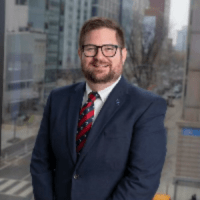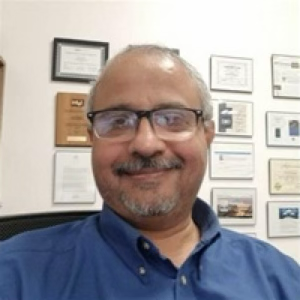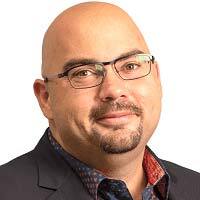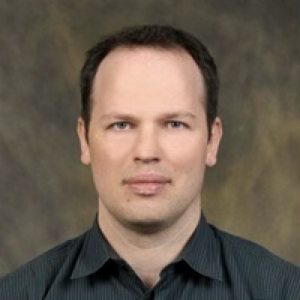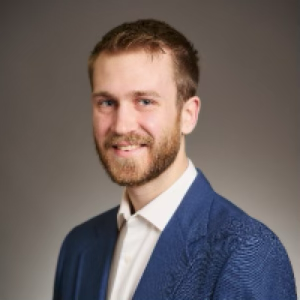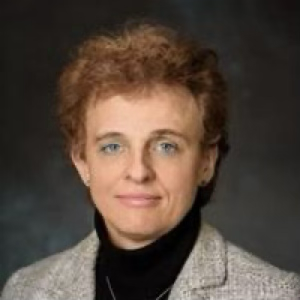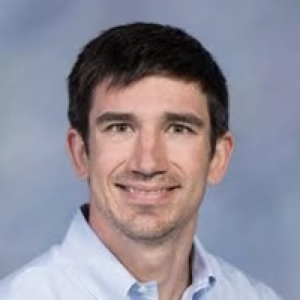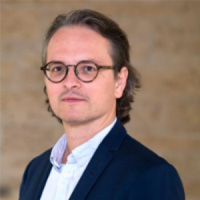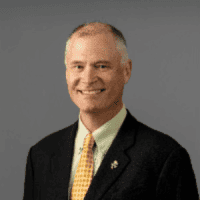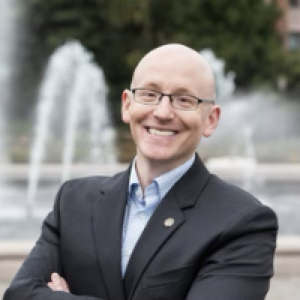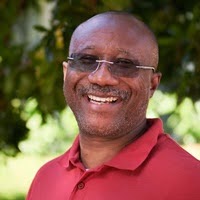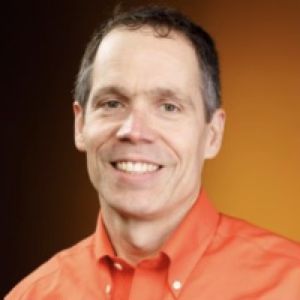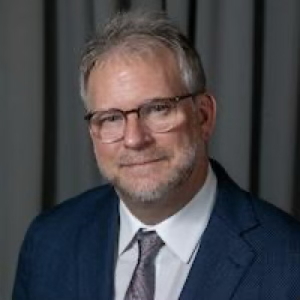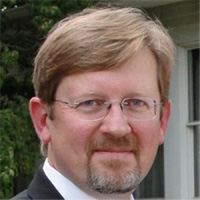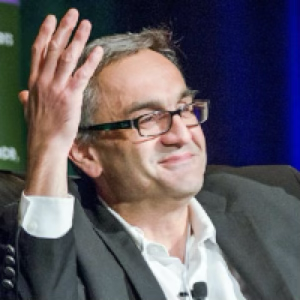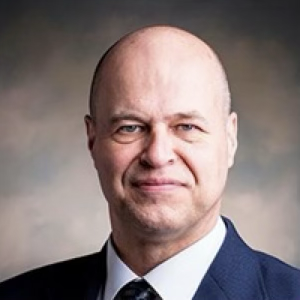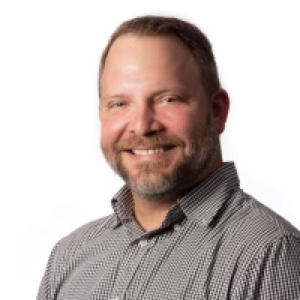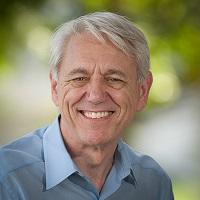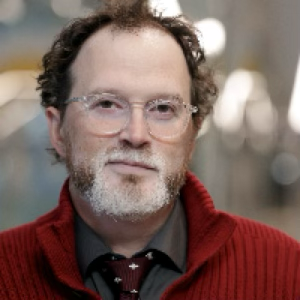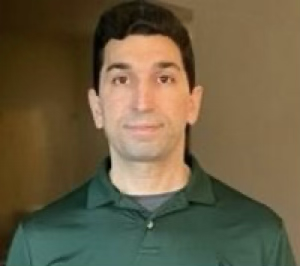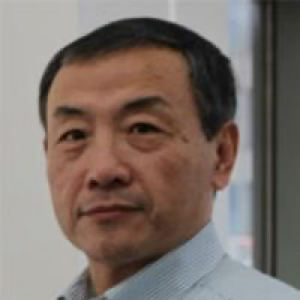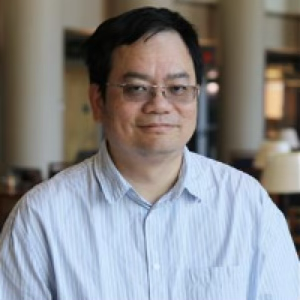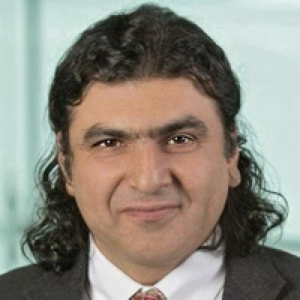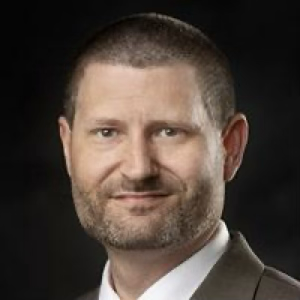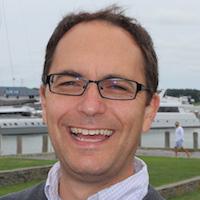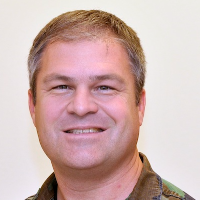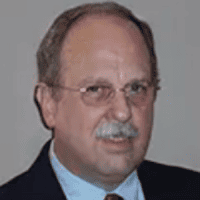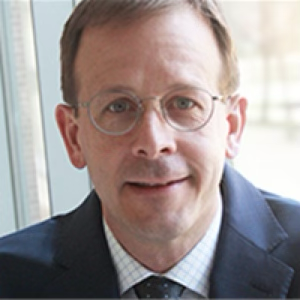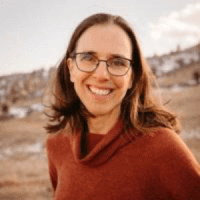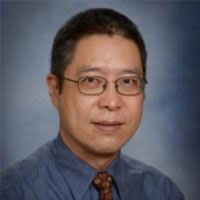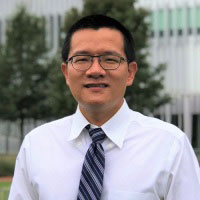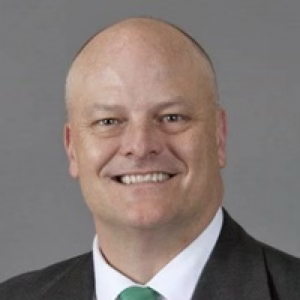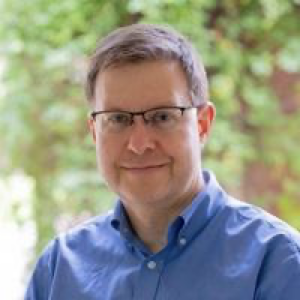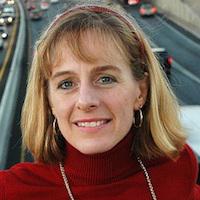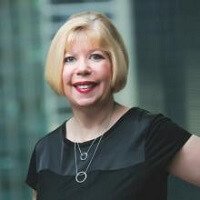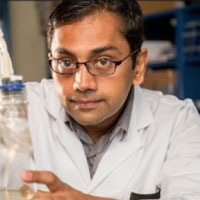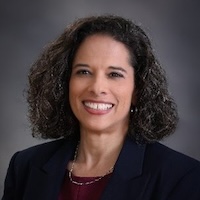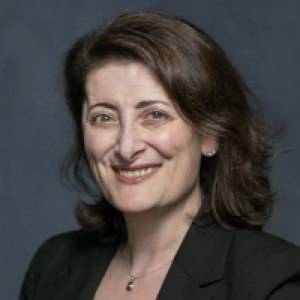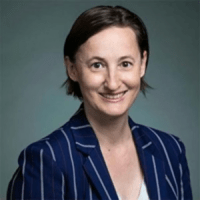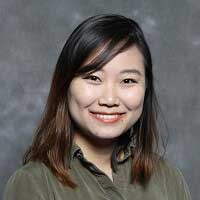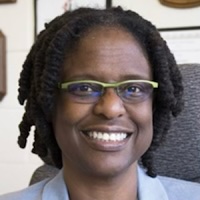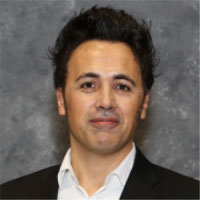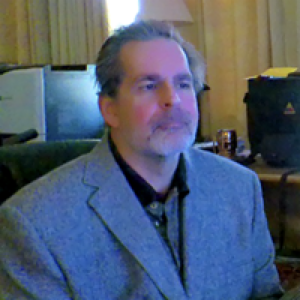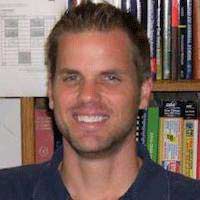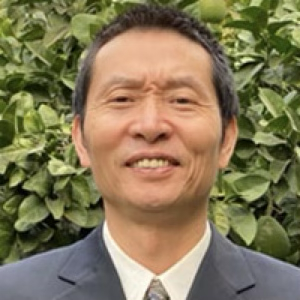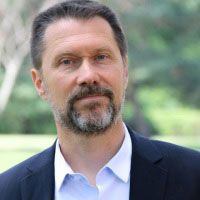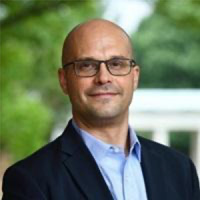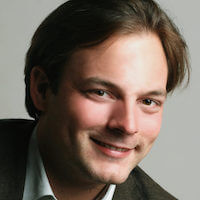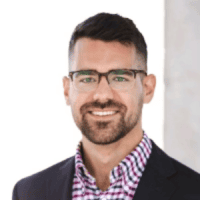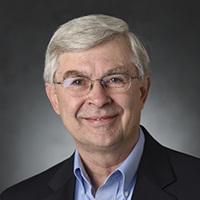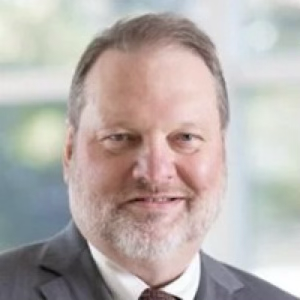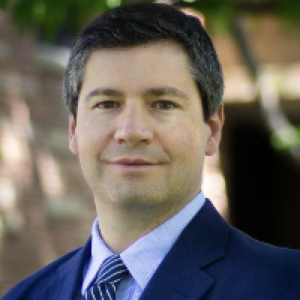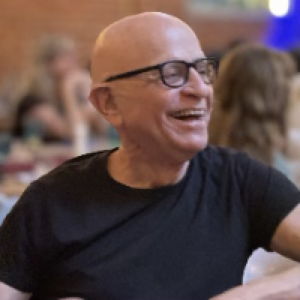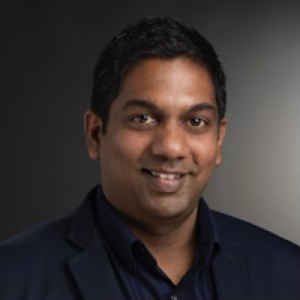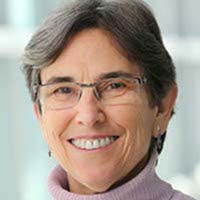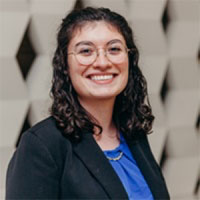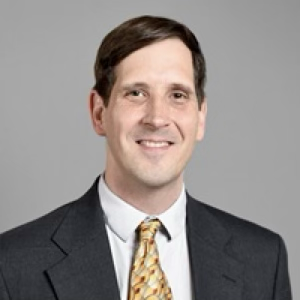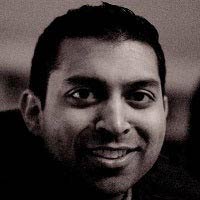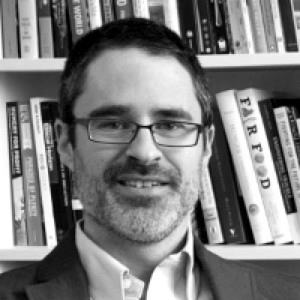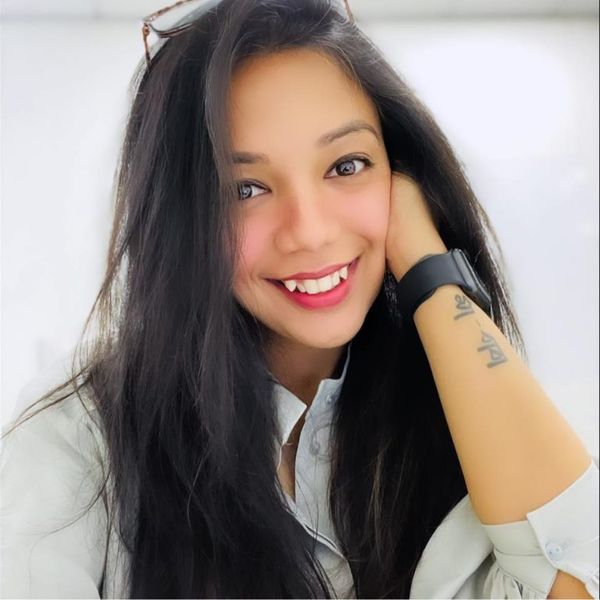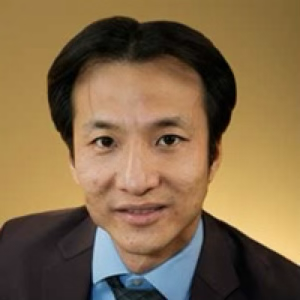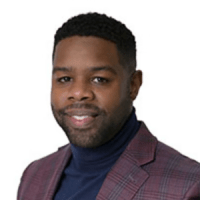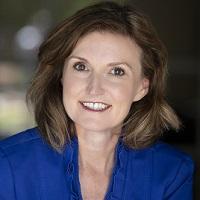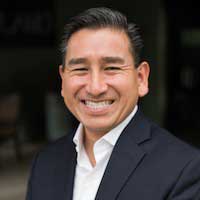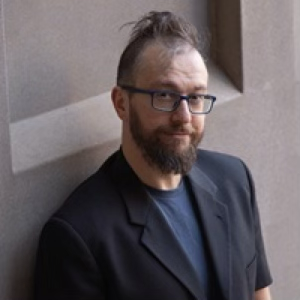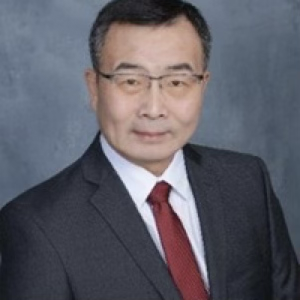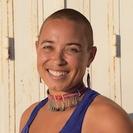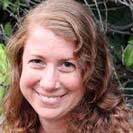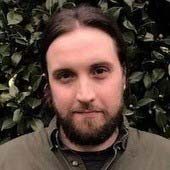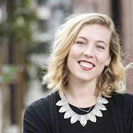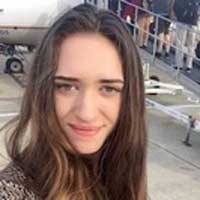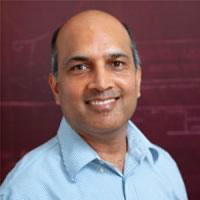
Abhishek Chandra, PhD
Dr. Abhishek Chandra is a professor in the Department of Computer Science and Engineering at the University of Minnesota. He co-leads the Distributed Computing Systems Group Lab at the University. He received his MS and PhD in computer science from the University of Massachusetts, Amherst.
Dr. Chandra’s research interests are in the areas of operating systems and distributed systems. His research focuses on resource management and performance in large-scale distributed systems to achieve reliability, scalability, and manageability. His recent focus has been on designing and optimizing systems for data-intensive computing applications in cloud and edge computing platforms, especially for data generated near end-users (e.g., mobile and IoT data).
Dr. Chandra is a lifetime member of the Association of Computing Machinery (ACM) and a member of IEEE. He is a recipient of the National Science Foundation’s CAREER Award, the IBM Faculty Award, the Cisco Research Award, and several Best Paper awards and nominations. He is currently serving on the Steering Committees for IEEE IC2E (as co-chair) and ACM HPDC conferences. He has served as an associate editor for the IEEE Transactions on Cloud Computing and IEEE Transactions on Computers, as General Co-Chair for ACM HPDC 2021, and as program co-chair for IEEE ICDCS 2021, ACM HPDC 2018, and IC2E 2018 conferences. In addition, he has served on the organizing and program committees of several conferences in his research area.
Adam Jones
Adam Jones is the principal and chief operating officer at Jones McAden & Associates LLC and serves as executive director of the American Council of Engineering Companies of South Carolina (ACEC-SC), a role he has held since 2014, following his service as deputy executive director. He also leads the South Carolina Society of Professional Engineers and advocates for related professional organizations.
Jones is active in professional leadership, including as vice president of the National Association of Engineering Council Executives and on the Columbia Chamber of Commerce Board of Directors, and has been recognized as South Carolina Association Executive of the Year. He holds a BS in business administration management from Limestone University and a master of environmental management from Webster University.
Ahmed Banafa, PhD
Dr. Ahmad Banafa is a technology expert and engineering professor at San José State University. He is a recognized authority in IoT, blockchain, cybersecurity, and artificial intelligence. Named LinkedIn’s No. 1 tech voice to follow in 2016 and 2018, he has been featured in Forbes, IEEE, MIT Technology Review, and interviewed by major outlets including ABC, Bloomberg, and NPR.
Dr. Banafa is the author of nine books and over 300 articles, including the award-winning Secure and Smart Internet of Things Using Blockchain and AI. His work is used in academic programs at institutions like Stanford University.
Dr. Banafa holds a PhD in artificial intelligence, an MS in electrical engineering, and certificates from Harvard and MIT. He has received numerous honors, including the Haskell Award for Distinguished Teaching and the San José State University Author and Artist Award.
Alex Fielding
Alex Fielding is the co-founder and CEO of Ripcord, a robotics company on a mission to take the world paperless. He began his career as an engineer for Cisco Systems and Apple, where he worked on multiple generations of macOS and PowerBook.
In 2001, Fielding co-founded Wheels of Zeus with Apple’s co-founder, Steve Wozniak; it was sold to Zontrak in 2006. Today, Fielding sits on the boards of the CodeWarrior Foundation and the Institute for the Study of Knowledge Management in Education (ISKME) and is on the advisory board of Astra Space.
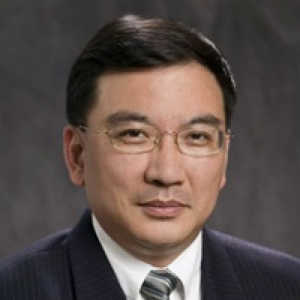
Andrew Yu, PhD
Dr. Andrew Yu is a professor of industrial and systems engineering at the Tickle College of Engineering, University of Tennessee, Knoxville. His research focuses on production planning and scheduling, facility and equipment maintenance, supply chain management, and logistics support.
Before joining UT, Dr. Yu served on the faculty at Southern Methodist University and Louisiana State University and worked as a senior consultant and solution architect with i2 Technologies (now part of JDA). In that role, he provided supply chain and logistics solutions for major organizations such as IBM, Northrop Grumman, Honeywell, Cardinal Health, and Airbus.
Dr. Yu has held leadership roles in the Institute of Industrial and Systems Engineers (IISE), including serving as president of the Data Analytics and Information Systems (DAIS) division. He is currently an area editor for Computers & Industrial Engineering and remains active in both IISE and INFORMS.
Dr. Yu earned his PhD in industrial engineering, as well as master’s degrees in systems science and engineering science, from Louisiana State University. He also holds an MS in operations research and a BS in electrical engineering from Shanghai Jiao Tong University.
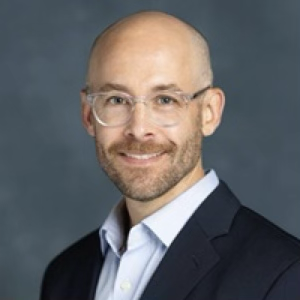
Andy Sarles, PhD
Dr. Andy Sarles is the James Conklin Fellow and professor in the Department of Mechanical, Aerospace, and Biomedical Engineering at the University of Tennessee, Knoxville, where he also serves as associate dean for academic affairs. His research focuses on biologically inspired and biomolecular material systems, with applications in sensing, energy conversion, actuation, and neuromorphic computing. He earned his BS from the University of Tennessee and both his MS and PhD from Virginia Tech.
Dr. Sarles is known for his work on biomimetic membranes and soft, reconfigurable materials. He has published extensively in journals such as ACS Nano, Langmuir, and Lab on a Chip, and has received multiple awards, including the NSF CAREER Award, the Gary Anderson Early Achievement Award from ASME, and the UT Research Foundation Innovation Award. He is an active member of ASME and the Materials Research Society, and has served in leadership roles for the ASME Smart Materials, Adaptive Structures, and Intelligent Systems (SMASIS) community.
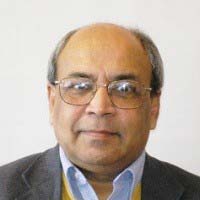
Ashok K. Goel, PhD
Dr. Ashok K. Goel is a professor of computer science and human-centered computing in the School of Interactive Computing at Georgia Institute of Technology, where he teaches classes in knowledge-based artificial intelligence, computational creativity, and cognitive science. He is also the director of Georgia Tech’s Design & Intelligence Laboratory, and the chief scientist for Georgia Tech’s Center for 21st Century Universities.
In addition to his widespread involvement in academic journals, conferences, and initiatives, Professor Goel pioneered the development of Jill Watson, an AI-powered teaching assistant. His current research projects explore design thinking and systems thinking in scientific modeling, visual thinking on intelligence tests, and analogical thinking and meta-thinking in human-robot interaction. Notably, he’s the author of two recent influential papers in the Journal of Thoracic Imaging: "Augmenting Interpretation of Chest Radiographs With Deep Learning Probability Maps" and "Deep Learning Localization of Pneumonia".
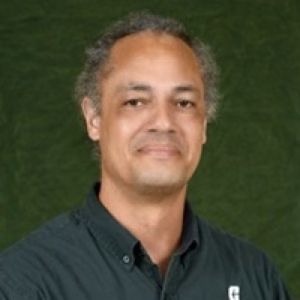
Brett Tempest, PhD
Dr. Brett Tempest is associate dean for academic affairs and associate professor of civil and environmental engineering at UNC Charlotte. His research focuses on sustainable construction materials, infrastructure resiliency, and engineering for developing regions. He is particularly known for advancing concrete and masonry systems that incorporate recycled and natural materials.
Dr. Tempest is also active in engineering education research, especially service learning integration. He holds a PhD in Infrastructure and Environmental Systems and dual MS and BS degrees in Civil Engineering from UNC Charlotte, as well as a BA in International Studies from UNC Chapel Hill.
He has received several teaching and humanitarian awards, including the William States Lee College of Engineering Outstanding Graduate Teaching Assistant Award and the Nish Jamgotch Student Humanitarian Award. He is a member of the American Concrete Institute, ASCE, PCI, and the U.S. Green Building Council.
Brian Larson, PhD
Dr. Brian Larson is the interim associate dean of graduate programs for the School of Business Administration, a professor of marketing, and distinguished university professor at Widener University. He earned his PhD in marketing from Oklahoma State University. At Widener University, he has become an accomplished and collaborative scholar, publishing numerous articles in refereed journals.
Dr. Larson’s research focuses on consumer and brand engagement. He has served as the chair of the management department and director of the sport management program, where he successfully led efforts to increase the number of business programs and grow Widener’s international presence. His active leadership helped build multiple global university alliances and create faculty research studies that bring together academic and industry experts from multiple international colleges. Currently, he serves on the International Academy of Business Disciplines Board of Directors.
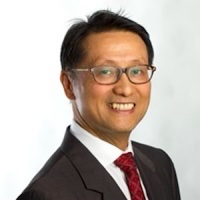
Cholik Chan, PhD
Dr. Cholik Chan is a professor of aerospace and mechanical engineering at the University of Arizona. He has been teaching since 1987. He has developed online classes for the online MS program.
Dr. Chan's research interests are solar energy, thermal energy storage, laser materials processing, electrothermal flow, double diffusive convection, and convective instabilities. He is familiar with the Lattice Boltzmann method, boundary element method, and spectral method. Recently, he has made significant contributions to the development of thermal energy storage systems, particularly in applying phase change materials for concentrated solar power plants.
Dr. Chan's research also encompasses computational modeling of thermocline thermal storage systems and the laser-powder interaction during direct metal deposition. His work has been published in reputable journals, including the International Journal of Heat and Mass Transfer, the Journal of Fluid Mechanics, and the Journal of Laser Applications.
Christian Keller, PhD
Dr. Christian Keller is an assistant professor in the Department of Mathematics at the University of Central Florida. Previously, he was a Donald J. Lewis research assistant professor of mathematics at the University of Michigan.
Dr. Keller obtained his PhD in applied mathematics at the University of Southern California. His research interests are path-dependent partial differential equations and applications in stochastic optimal control and mathematical finance.
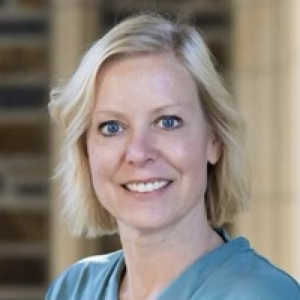
Christy Bozic, PhD, MBA
Dr. Christy Bozic is the executive director of the master of engineering management (MEM) program at Duke University's Pratt School of Engineering. She earned her PhD in curriculum and instruction from Purdue University, focusing on innovative instructional methods in engineering and technology education. Additionally, she holds an MBA from Butler University and a BS in industrial engineering technology and supply chain management from Purdue University.
Before joining Duke, Dr. Bozic served as the Lockheed Martin Professor of Engineering Management and faculty director of the engineering management program at the University of Colorado. Her professional experience includes significant roles at Purdue University and extensive global business development work with companies such as Federal Mogul, Kimball Electronics Group, and TDK Corporation. She holds certifications in Project Management (PMP) and Engineering Management (CPEM).
Dr. Bozic's scholarly work encompasses publications on university-industry partnerships, innovation education, and workforce development. She is an active member of professional associations, including the American Society for Engineering Education (ASEE), the American Society for Engineering Management (ASEM), and the Project Management Institute (PMI).
Connor Edson, PhD
Dr. Connor Edson is an instructor and associate of engineering at Guilford Technical Community College. He recently earned his doctorate in mechanical engineering from the University of Minnesota, where his research focused on modeling, control, and optimization of autonomous off-highway vehicles for improved energy efficiency. He has published multiple peer-reviewed articles on vehicle dynamics and optimization, taught undergraduate engineering courses, and brings experience collaborating with industry and multidisciplinary research teams.
Cristina Comaniciu, PhD
Dr. Cristina Comaniciu is an associate professor and the associate chair for graduate studies in the Department of Electrical and Computer Engineering at Stevens Institute of Technology. She earned her PhD in electrical and computer engineering from Rutgers University and completed a postdoctoral fellowship at Princeton University.
Dr. Comaniciu’s research focuses on game theory, machine learning, and wireless communications, with applications in smart grids, network security, and resource allocation. Dr. Comaniciu has been recognized with numerous awards, including the IEEE Marconi Best Paper Prize in Wireless Communications and the Stevens ECE Outstanding Service Award. Her work is supported by grants from agencies such as the NSF and ONR, and she actively contributes to professional societies like IEEE.
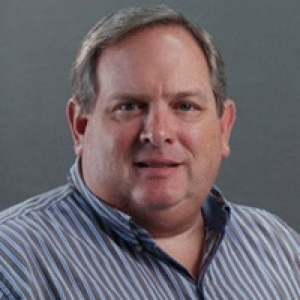
Dale G. Dzielski
Dale Dzielski is program director of the master of science in software engineering program at West Virginia University’s Statler College of Engineering. He is also a Project Management Professional (PMP), a Certified Management Accountant (CMA), a Certified SAFe Agilist, and an IEEE Senior Member with 35 years of extensive experience supporting complex, deadline-driven operations with IT professionals across various industries, including federal and state government sectors with related security clearances.
Dzielski led the Defense Logistics Agency’s (DLA) Supply Chain Technology and Analysis Research (SC-TAR) and Logistics Enterprise Services Integration (LESI) Projects, Defense Enterprise Logistics Technology Analysis (DELTA) and Defense Open Media Environment (DOME) Laboratories, as well as the Joint United States Army and Marine Corps Logistics Interoperability Demonstration (AMLID) Projects. His primary research interests include distance learning environments, collaborative environments, software engineering, effort and risk associated with architecture technical debt, business process management and supply chain, enterprise architecture frameworks, and interoperability.
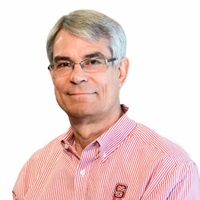
Daniel D. Stancil, PhD
Dr. Daniel Stancil is the Alcoa Distinguished Professor and the executive director of the IBM Quantum Hub at NC State. He holds engineering degrees from Tennessee Tech (BSEE) and MIT (MS, EE, and PhD). He has spent many years as a professor of electrical and computer engineering at both Carnegie Mellon University and NC State.
While at CMU, he served as associate head of the ECE Department and associate dean for academic affairs in the College of Engineering. He was head of the ECE Department at NC State from 2009 to 2023.
Dr. Stancil’s research has included such varied topics as magnetic films, optics, microwaves, wireless channels, antennas, remote labs, and particle physics. The demonstration of neutrino communications by a multidisciplinary team coordinated by Dr. Stancil was recognized by Physics World Magazine as one of the Top 10 Physics Breakthroughs of 2012. His work has received additional recognitions including an IR 100 Award and a Photonics Circle of Excellence Award. Dr. Stancil is a Fellow of the Institute of Electrical and Electronics Engineers and a past president of the IEEE Magnetics Society.
Daniel J. Preston, PhD
Dr. Daniel Preston is an assistant professor of mechanical engineering at Rice University. He is also director of the Preston Innovation Laboratory (PI Lab), which conducts interdisciplinary research at the intersection of energy, materials, and fluids.
Dr. Preston obtained his BS (2012) in mechanical engineering from the University of Alabama and his MS (2014) and PhD (2017) in mechanical engineering from the Massachusetts Institute of Technology. Following his graduate work, he trained as a postdoctoral fellow (2017-2019) at Harvard University in the Department of Chemistry and Chemical Biology.
He is a recipient of the NSF CAREER Award, the ASME Old Guard Early Career Award, and the Energy Polymer Group Certificate of Excellence. His lab is funded by NASA, the National Science Foundation, and the Department of Energy, among other sources.
Daniel Koehler, PhD
Dr. Daniel Koehler is an assistant professor at the University of Texas at Austin School of Architecture, where he champions forward-thinking architectural theory and design research. His work takes a deep dive into the fascinating crossroads of generative AI, architectural theory, and research by design, projecting optimistic futures through the synergy of architecture.
Specializing in generative systems and compositional histories, Dr. Koehler seeks to understand the impact of AI on urban architecture. He is a respected voice in the architecture community, with over 50 publications, including a monograph, edited volumes, and conference papers. He holds a bachelor’s of science in architecture from the University of Dortmund, a master’s in architecture from the University of Applied Arts - Studio Hadid Vienna, Austria, and a PhD in architecture and urban design from the University of Innsbruck, Austria.
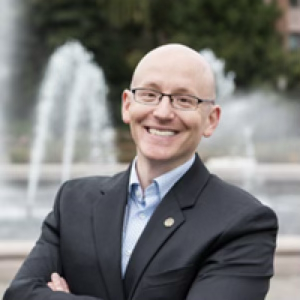
Daniel M. Ratner, PhD
Dr. Daniel Ratner is associate dean for academic affairs in the College of Engineering and professor of bioengineering at the University of Washington. His research focuses on leveraging molecular engineering and chemical synthesis to design molecularly-inspired materials for diagnostics and pulmonary drug delivery. He has patented multiple inventions and launched a start-up medical device company that licensed UW technology to address critical unmet medical needs in transfusion medicine.
Dr. Ratner trained in Infectious Diseases at the Boston Medical Center / Boston University. He earned his PhD in chemistry from the Massachusetts Institute of Technology and his BA in chemistry from Pomona College. Dr. Ratner has a record of excellence in classroom teaching and curricular development, which has been recognized with multiple departmental teaching awards, two nominations for the UW Distinguished Teaching Award, the College of Engineering Dean’s Award, and selection to the National Academy of Engineering Frontiers in Engineering Education. He also has a strong record of mentorship in the laboratory, having mentored over 125 postdoctoral, graduate, and undergraduate trainees in his lab and on thesis committees.
Daniel Oerther, PhD
Dr. Daniel Oerther is a professor of environmental engineering at the Missouri University of Science and Technology. A Missouri S&T faculty member since 2010, he has earned several S&T awards for teaching, including the 2023 Faculty Teaching Award, the 2022 Experiential Learning Award, and the 2017 Service Learning Award. In 2024, he received the Duncan Fraser Global Award for Excellence in Engineering Education from the International Federation of Engineering Education Societies.
Dr. Oerther regularly uses the HyFlex learning model, which includes three formats: face-to-face, synchronous online, and asynchronous recordings. Courses include environmental systems modeling, public health engineering, biological principles of environmental engineering systems, and biological operations in environmental engineering systems.
Daniel Ratner, PhD
Dr. Daniel Ratner is the associate dean for academics and a professor of bioengineering for the College of Engineering at the University of Washington. He completed his undergraduate studies in the liberal arts at Pomona College, earned his PhD at MIT, and did postdoctoral training in Infectious Diseases at Boston Medical Center. Dr. Ratner is a biomedical researcher by trade and has spent the last seven years in academic administration, initially as the associate vice provost for enrollment management and now as the associate dean for academics. His primary work involves supporting 9,000 students in the College of Engineering, particularly focusing on first-year students and major discernment.
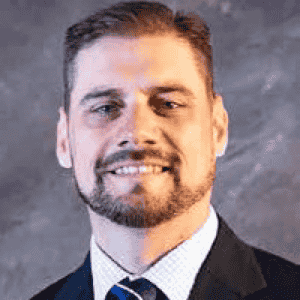
Danny Georgiadis, PhD
Dr. Danny Georgiadis is a professor in the Department of Industrial and Manufacturing Engineering (IME) at the FAMU-FSU College of Engineering. He leads the graduate program in Systems Engineering at Florida State University’s Panama City campus. A recognized expert in systems engineering, Dr. Georgiadis brings more than two decades of experience spanning civil service with the U.S. Navy, defense contracting, and academia.
Dr. Georgiadis earned his PhD in systems engineering from The George Washington University, an MS in management from Troy University, and a BS in electrical engineering from Florida State University, Panama City. He continues to support the defense community as a senior engineering consultant and former CTO at Hepburn and Sons LLC.
An award-winning educator, he was named 2018 “Engineer of the Year” by the District of Columbia Council of Engineering and Architectural Societies, nominated by the American Society of Naval Engineers. He has authored multiple publications in INCOSE and the Journal of Systems Engineering, and remains an active member of ASNE and the Society of Naval Architects and Marine Engineers.
Darin Gray, EdD
Dr. Darin Gray is the director of the USC Viterbi School of Engineering K-12 STEM Center. The Center’s mission is to inspire, inform, and impact underserved, disadvantaged, and historically underrepresented K-12 students to develop a lifelong identity in STEM.
In addition to his 27 years of service at USC, Gray has worked as an engineer at Hughes Aircraft and as a part-time teacher for the Los Angeles Unified School District. He is also a sergeant in the California State Guard, where he provides cybersecurity training and assists with the cybersecurity of State systems.
Dr. Gray has presented at the American Society of Engineering Education Conference, the California STEM Symposium, the State of STEM Conference, the American Association for Adult and Continuing Education, and the Magnet Schools of America Conference. In 2020, he received the James E. Ballinger Engineer of the Year award.
David Mikesell, PhD
Dr. David Mikesell is a professor of mechanical engineering at Ohio Northern University. He holds a PhD and is a licensed professional engineer (PE).
Dr. Mikesell joined the ONU faculty in 2007 after earning experience in automotive engineering at Ohio State, designing automated assembly systems and metal-cutting tools at Grob Systems, and serving four years as a U.S. Navy officer.
Dr. Mikesell’s academic credentials include a BA in German from Duke University, a BS in mechanical engineering from ONU, and both MS and PhD degrees from Ohio State University. His research focuses on land vehicle dynamics, autonomous vehicles, robotics, and advanced manufacturing.
Davy McDowell, MS
Davy McDowell is the CEO of the National Council of Examiners for Engineering and Surveying (NCEES).
He received his BS and MS in engineering from Clemson University.
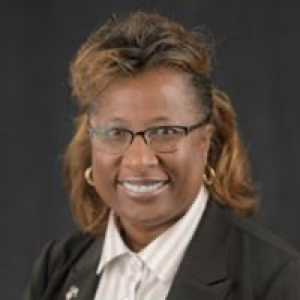
Deidra Hodges, PhD
Dr. Deidra R. Hodges is an associate professor and the chair of the Department of Electrical and Computer Engineering at Florida International University. She is an exceptional leader in photovoltaics (PV) and solar energy research with extensive experience in PV and X- and gamma-ray radiation detectors for National Security. She is highly focused on advancing renewable energy, sustainability, nuclear materials, and extreme photon sensing.
Dr. Hodges’ contributions include supporting and developing the pixilated cadmium zinc telluride (CZT) gamma detector at Brookhaven National Laboratory and highly efficient thin-film mixed perovskite halides photovoltaics. She has achieved perovskite solar cell power conversion efficiencies greater than 21 percent, approaching the world record efficiency of 25.2 percent.
Dr. Hodges’ network spans many Department of Energy government laboratories, including BNL, Idaho National Laboratory, Kansas City National Security Center Honeywell FM&T, and the National Renewable Energy Laboratory, collaborating with Scientists and as a user of facilities.
Donald Gelosh, PhD
Dr. Donald Gelosh is director of systems engineering programs at Worcester Polytechnic Institute (WPI). He received his MS in computer systems design from the University of Houston at Clear Lake and his PhD in electrical and computer engineering from the University of Pittsburgh.
Dr. Gelosh supports the needs of WPI’s corporate partners and their students and is a strong advocate for the advancement of the practice of systems engineering through his efforts with the International Council on Systems Engineering (INCOSE) and the Systems Engineering Division of the National Defense Industrial Association. He has over 40 years of systems engineering experience from various assignments with the US Air Force, government, industry, and academia.
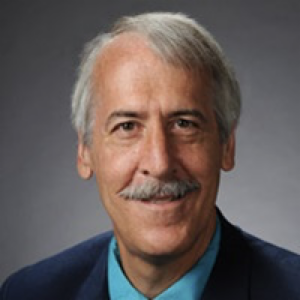
Doug Jacobson, PhD
Dr. Doug Jacobson is a professor in the Department of Electrical and Computer Engineering at Iowa State University. He joined the faculty after receiving his PhD degree in computer engineering from Iowa State University.
Dr. Jacobson is currently the director of the Iowa State University Information Assurance Center, which has been recognized by the National Security Agency as a charter Center of Academic Excellence for Information Assurance Education. He is also director of the NSF I/U CRC Center for Information Protection and the Internet-Scale Event and Attack Generation Environment (ISEAGE).
Dr. Jacobson is the founder of Palisade Systems, Inc., an Ames-based company marketing Internet management and security devices. He has received two R&D 100 awards for his security technology and two patents in the area of computer security. He has given over 50 presentations in the area of computer security and has testified before the U.S. Senate committee of the Judiciary on security issues associated with peer-to-peer networking.
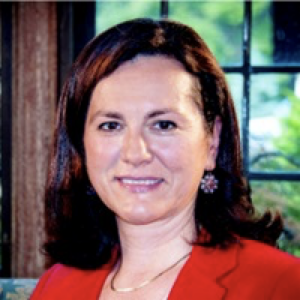
Edvina Uzunovic, PhD
Dr. Edvina Uzunovic is the associate director of power systems engineering and assistant teaching professor at Worcester Polytechnic Institute (WPI). She has a BSc from the University of Sarajevo, Bosnia, and Herzegovina, as well as an MASc and doctorate degree in electrical and computer engineering from the University of Waterloo, Ontario, Canada.
Dr. Uzunovic has more than 15 years of experience with various responsibilities in the power systems industry. She has been a vital contributor to the overall success of several leading power industry organizations while serving different roles as a technical officer in smart grid transmission applications, a senior quantitative analyst, and a senior research and technology development engineer.
Dr. Uzunovic has received two awards from the Electric Power Research Institute (EPRI) for contributions to the Flexible AC Transmission Systems (FACTS) technology: the Innovators’ Award and the EPRI Technology Award. She has also received two recognitions from the US National Committee of CIGRE (the International Council on Large Electric Systems) for noteworthy technical papers in 2002 and 2006. Notably, she is VP of education for the IEEE Power and Energy Society.
Eray S. Aydil, PhD
Dr. Eray S. Aydil is the senior vice dean of the NYU Tandon School of Engineering and the Alstadt Lord Mark Professor of Chemical and Biomolecular Engineering. A leader in renewable energy and materials science, he previously served as chair and held the Christenson Chair in Renewable Energy at the University of Minnesota.
An elected fellow of the American Vacuum Society and editor-in-chief of the Journal of Vacuum Science and Technology, Dr. Aydil has authored more than 250 papers, holds seven patents, and is widely recognized for his pioneering work on thin films and plasma processing for sustainable energy technologies.
Eric Steinberg, PhD
Dr. Eric Steinberg has been a professor of civil engineering at Ohio University for more than 24 years. He is currently involved in several ODOT-funded research projects including leading the structures research services program. He is a board member of the Ohio Research Initiative for Locals (ORIL) and is involved as a technical advisory committee member on several of the organization’s research projects.
Dr. Steinberg is a member of PCI’s Committee on Bridges and a consulting member of the Student Education Committee. He is also a panel member on a National Cooperative Highway Research Project for the Transportation Research Board. He is a registered PE in Ohio and is a member of ACI, ASCE, and PCI. He has served as an expert witness in the field of structural engineering and as the faculty advisor for the student organizations of ASCE and SEAO.
Garrett C. Struckhoff, PhD
Dr. Garrett C. Struckhoff is the coordinator of the environmental engineering master’s program and a professor in the Department of Civil and Environmental Engineering at California State University, Fullerton.
Dr. Struckhoff’s research focuses on sustainable bioremediation, particularly the use of plants and algae to uptake and break down environmental contaminants such as perchloroethene, perchlorate, and emerging pollutants, as well as exploring green technologies like algae-based biofuel systems and green-roof integrated solar efficiency.
George Crabtree, PhD
Dr. George Crabtree is a senior scientist and distinguished fellow at Argonne National Laboratory; distinguished professor of physics, mechanical and electrical engineering at the University of Illinois at Chicago; and director of the Joint Center for Energy Storage Research (JCESR). He received his BS in science engineering, his MS in physics, and his PhD in condensed matter physics.
In the course of his distinguished career, he's published more than 440 scientific papers on topics that range from energy policy to next-gen battery materials to sustainable energy. He’s led Department of Energy (DOE) workshops on energy storage, co-chaired assessments of the DOE’s applied energy programs, and testified before Congress about the challenges and opportunities associated with sustainable energy. In 2018, Crabtree's team at JCESR received the Secretary of Energy's Achievement Award for its work in the future of next-gen batteries.
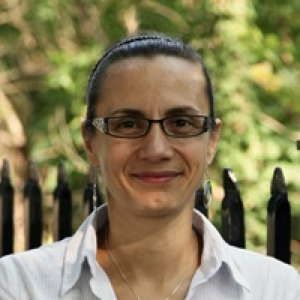
Geri Miller, MA
Geri Miller is the associate program director and a senior lecturer for the MS in geographic information systems program at Johns Hopkins University and has been an instructor in the program since its inception. She has developed and taught a range of the GIS curricula, including web GIS, geospatial data modeling, spatial analytics, and programming in GIS.
Miller is a GIS instructor and technical lead at the Environmental System Research Institute since 2004, specializing in the online delivery of various geospatial technology courses. Much of her work focuses on improving online delivery methods of GIS classes designed to provide a rich learning environment for educating GIS users.
Miller has worked extensively with many universities to support and enhance their GIS programs as a lecturer, course author, and curriculum developer. In addition to teaching at Johns Hopkins University, she has taught at the University of Delaware, the Community College of Philadelphia, and West Chester University of Pennsylvania and has helped others stay on the leading edge of GIS technology.
Miller has a BS from Drexel University and has completed certifications in CompTIA C++ Certified Technical Trainer; CompTIA CTT+ Virtual Classroom Trainer; Esri ArcGIS Desktop Professional; and Esri Enterprise Administration Associate. She holds an MA degree from the West Chester University of Pennsylvania.
Giuseppe Palmese, PhD
Dr. Giuseppe Palmese is dean of the Henry M. Rowan College of Engineering at Rowan University and a professor of chemical engineering. A leader in engineering education and research, he earned his BSE from Princeton University and his PhD in chemical engineering from the University of Delaware.
Dr. Palmese’s research focuses on thermosetting polymers, additive manufacturing, and sustainable materials. At Rowan, he also serves as associate director of the Advanced Materials & Manufacturing Institute (AMMI), helping to advance interdisciplinary innovation across engineering and science.
Greg Less, PhD
Dr. Greg Less is the technical director of the University of Michigan Battery Lab, where he manages day-to-day operations and supports collaborations between academia and industry to advance next-generation energy storage technologies. He earned his bachelor’s degree in chemistry from Oregon State University and his PhD in chemistry from the University of Michigan.
In his role, Dr. Less guides researchers and industry partners in developing, fabricating, and characterizing battery prototypes that bridge fundamental science and practical application.
Hassan Jishi, PhD
Dr. Hassan Jishi is an assistant professor in the College of Aviation at Embry-Riddle Aeronautical University, where he is also the program coordinator of the MS in aerospace engineering program.
Dr. Jishi earned his BS in aerospace engineering and his BS in mechanical engineering from Arizona State University, his BS in aerospace vehicle design from Cranfield University, and his PhD from Khalifa University of Science, Technology, and Research.
Herman Tang, PhD
Dr. Herman Tang is a professor and program coordinator in the master of science in quality management program at Eastern Michigan University GameAbove College of Engineering & Technology. He earned his MBA in industrial management from Baker College and his PhD in mechanical engineering from the University of Michigan, Ann Arbor.
Before joining EMU, Dr. Tang was a lead engineering specialist at Fiat Chrysler Automobiles (FCA). At FCA, he led the engineering specialist team that evaluated, analyzed, and helped improve the system performance and capability (productivity and quality) of body, paint, and general assembly at the vehicle assembly plants. He also worked on the manufacturing development for five vehicle programs and launch support for seven vehicle programs.

Hongyi “Michael” Wu, PhD
Dr. Hongyi “Michael” Wu is the Thomas R. Brown Leadership Chair and department head of electrical and computer engineering at the University of Arizona. He received his BS degree in scientific instruments from Zhejiang University, Hangzhou, China, and subsequently obtained his MS degree in electrical engineering and PhD degree in computer science at the State University of New York (SUNY) at Buffalo. His current research focuses on security and privacy in intelligent computing and communication systems.
Dr. Wu has been a PI or co-PI on more than 60 projects that have received over $29 million in funding from various sources, including the NSF, NSA, DOD, DOE, NATO, State governments, and industry partners. He has published over 180 technical articles in journals and conference proceedings and acquired a US patent. He has chaired several conferences, including the prestigious IEEE Infocom 2020. He has also served on the editorial board of many prestigious scientific journals. He has received several awards and honors throughout his career, including an NSF CAREER Award, the UL Lafayette Distinguished Professor Award, the IEEE Percom Mark Weiser Best Paper Award, and the UB CSE Distinguished Alumni Award. He is a fellow of IEEE.
Huck Beng Chew, PhD
Dr. Huck Beng Chew is a professor and associate head in the Department of Aerospace Engineering at the Grainger College of Engineering, University of Illinois Urbana-Champaign, where he also serves as Director of Graduate Studies. He earned his BEng (First Class Honors, University Scholar Program), MEng, and PhD in mechanical engineering from the National University of Singapore.
A registered chartered engineer and environmental engineer in the UK and a Fellow of the Institute of Mechanical Engineers, Dr. Chew’s research spans a vast array of areas, including aerospace materials, aerospace structures, computational fluid dynamics, hypersonics, space systems, and more. His pioneering contributions to multiscale and nanomechanics earned him the prestigious Zdeněk P. Bažant Medal in 2025 for outstanding impact in mechanics research and its interdisciplinary applications.
Ionut Florescu, PhD
Dr. Ionut Florescu is a research professor in financial engineering at Stevens Institute of Technology. He also serves as director of the financial technology and analytics program and director of the Hanlon Financial Systems Lab at Stevens.
Dr. Florescu’s research interests are concentrated primarily in stochastic processes and their applications to finance; however, his work involves applying sound mathematical modeling techniques to any area of science and engineering, including computer vision, cryptography, geophysical studies, ocean studies, weather forecasting, and biomedical engineering.
Dr. Florescu has been working at Stevens since 2005 after obtaining his PhD in statistics from Purdue University. His education includes a bachelor’s in mathematics and a master's in stochastic processes from the University of Bucharest, Romania, as well as a master’s in computational finance from Purdue University.
Isaac L. Howard, PhD
Dr. Isaac Howard is the materials and construction industries endowed chair in the civil & environmental engineering (CEE) department at Mississippi State University. He also works with the Center for Advanced Vehicular Systems (CAVS). He earned his BS in civil engineering from Arkansas State University, his MS in civil engineering from West Virginia University, and his PhD in civil engineering from the University of Arkansas.
Dr. Howard’s research interests include construction materials, infrastructure, airfield and highway asphalt pavements, and advanced construction materials such as composites and high performance concrete.
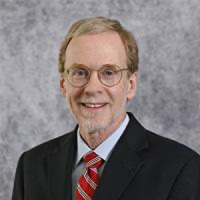
James Lester, PhD
Dr. James Lester is the Goodnight Distinguished University Professor in Artificial Intelligence and Machine Learning at North Carolina State University. He is the director of the Center for Educational Informatics and the National Science Foundation AI Institute for Engaged Learning. His research centers on transforming education with artificial intelligence. His current work ranges from AI-driven narrative-centered learning environments and virtual agents for learning to multimodal learning analytics and sketch-based learning environments.
Dr. Lester received a National Science Foundation CAREER Award, four Best Paper Awards, and the International Federation for Autonomous Agents and Multiagent Systems Influential Paper Award. At North Carolina State University, he has been recognized with the Alumni Association Outstanding Research Award, the Outstanding Teacher Award, and the Alexander Quarles Holladay Medal for Excellence. His research is supported by the National Science Foundation, the US Department of Education’s Institute of Education Sciences, the National Institutes of Health, and the Army Futures Command. He has served as Editor-in-Chief of the International Journal of Artificial Intelligence in Education. He is a fellow of the Association for the Advancement of Artificial Intelligence (AAAI).
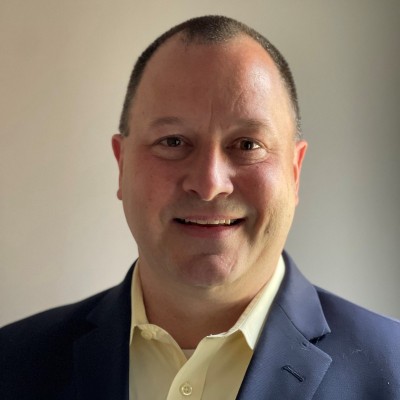
Jason Caturano, BS
As vice president of product strategy, Jason Caturano is responsible for the overall product direction of Harris Data Integrity Solutions. He oversees the software product lifecycle by managing the application development, implementation, and support team.
Caturano works closely with other executive team members on business expansion and customer loyalty and satisfaction. A motivated technology executive, he brings more than 15 years of experience leading teams in developing and supporting healthcare software solutions to his role with the company. He originally joined QuadraMed Corp., a Harris Computer business unit, in 2018 and served as its VP of research and development and VP of operations. He previously held operations, engineering, and application design positions with Optum and another Harris business unit, Picis.
Caturano holds a bachelor of science in information technology from the University of Phoenix and is a Certified Support Manager (CSM) in addition to his Project Management Professional (PMP) certification.
Jason Corso, PhD
Dr. Jason Corso is an associate professor of electrical engineering and computer science at the University of Michigan. His primary research focuses on high-level computer vision, with an emphasis on video understanding for physical engagement with the environment by agents (e.g., robots).
Dr. Corso has published on a large number of problems in this space, but his primary areas are video segmentation and video action recognition. His company, Voxel51 LLC, seeks to expose video understanding in a commercial setting.
Jason Durfee, PhD
Dr. Jason Durfee is a professor of mechanical engineering and technology at Eastern Washington University. He is also a retired command pilot from the Washington Air National Guard and a former airline transport pilot.
He has a professional engineer (PE) license in mechanical engineering from the Commonwealth of Virginia. He earned his PhD studying turbulent flow through forests at Washington State University. He teaches primarily fluid mechanics and engineering graphics courses.
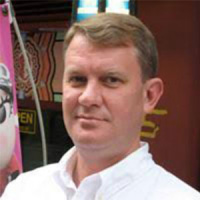
Jeff Gill, PhD, MBA
Dr. Jeff Gill is a distinguished professor in the Department of Government and the Department of Mathematics and Statistics at American University's School of Public Affairs. He is also a Center for Neuroscience and Behavior member, the inaugural director at the School of Public Affairs' Center for Data Science, and the editor-in-chief of the renowned journal Political Analysis.
Dr. Gill coordinates and supports empirical research across the campus by developing links with federal agencies, providing research support to faculty and graduate students, and building infrastructure to handle large and complex datasets. His research applies Bayesian modeling and data analysis (decision theory, testing, model selection, elicited priors) to questions in general social science quantitative methodology, political behavior and institutions, medical/health data analysis (especially physiology, circulation/blood, pediatric traumatic brain injury, and epidemiological measurement/data issues), using computationally intensive tools.
He holds a bachelor’s degree in math from the University of California, Los Angeles, a master’s of business administration from Georgetown University, and a PhD from American University.
Jeff Ulmer, PhD
Dr. Jeff Ulmer is an associate professor in the School of Industrial Sciences and Technology at the University of Central Missouri (UCM), where he brings more than two decades of industrial experience in engineering, production, and quality management to his teaching and mentoring.
With a PhD in technology management (manufacturing systems) from Indiana State University, Dr. Ulmer helps students design efficient study plans, including fully online transfer paths, and guides them toward timely degree completion. Drawing on 24 years in industry and eight years in academia, he combines real-world insight with academic standards to foster practical, career-oriented education in technology and industrial management.
Jeffrey R. Roesler, PhD
Dr. Jeffrey Roesler is the Ernest Barenberg Professor of Civil & Environmental Engineering (CEE) at the Grainger College of Engineering at the University of Illinois, Urbana-Champaign. He holds BS, MS, and PhD degrees in civil engineering from the University of Illinois at Urbana-Champaign, and has been on the faculty of CEE at Illinois since 2000. Before joining the faculty, he was a visiting postdoctoral researcher at the University of California at Berkeley.
Dr. Roesler has taught undergraduate and graduate courses in pavement and materials engineering, transportation engineering, geometric design of roadways, project-based intro to CEE, and CEE professional practice. He is an active participant in the Transportation Research Board (TRB) and past president of the International Society of Concrete Pavements (2020-2022). He is a registered PE in California.
Jen Johnson, PhD
Dr. Jen Johnson is the director of the Engineering Success Center in the Walter Scott, Jr. College of Engineering at Colorado State University. In this role, she leads student success initiatives designed to support undergraduate engineering students from recruitment through graduation, with an emphasis on academic advising, engineering education equity, and the development of scalable success models within large, multidisciplinary colleges of engineering. Dr. Johnson earned her MS in student affairs in higher education and her PhD in education and human resource studies from Colorado State University.
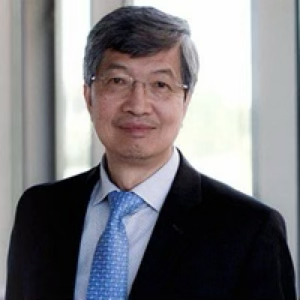
Jenn-Ming Yang, PhD
Dr. Jenn-Ming Yang is a distinguished professor of materials science and engineering and associate dean of international initiatives and online programs at UCLA’s Henry Samueli School of Engineering and Applied Science. He also serves as chair of the Department of Materials Science and Engineering. With over 20 years of research and teaching experience, Dr. Yang is an internationally recognized expert in the mechanical behavior of metallic and composite materials for aerospace structural and propulsion applications.
Dr. Yang’s research focuses on processing, microstructural characterization, micromechanical modeling, and life prediction of high-temperature composites and nanostructured materials. He has served as principal or co-principal investigator on numerous federally funded research projects, including grants from NSF, NASA, FAA, ARO, AFOSR, and NIST. Dr. Yang has published over 200 technical papers in his field.
Dr. Yang’s numerous honors include the National Science Foundation’s Presidential Young Investigator Award, the R&D 100 Award, the Alcoa Foundation Award, and the Ford Foundation Award. He is also a recipient of the Best Paper Award from the Japan Society of Mechanical Engineers and has held prior appointments such as the National Engineering Research Center Scholars Award and UCLA’s Faculty Career Development Award.
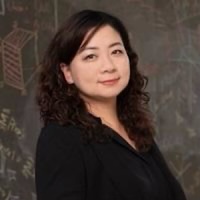
Jia Liu, PhD
Dr. Jia Liu is a professor and chair of the Department of Mathematics and Statistics at the University of West Florida. She earned her PhD in mathematics from Emory University.
Dr. Liu’s research focuses on computational mathematics, especially the numerical solver for large sparse linear systems. She studies Krylov subspace iterative algorithms, preconditioning techniques, biological models, machine learning, and complex network structures.
Dr. Liu’s research has been published in the SIAM Journal of Scientific Computing, the International Journal of Computer Mathematics, the Journal of Biological Dynamics, the Journal of Applied Physics, and other peer-reviewed journals. They covered preconditioning techniques for solving the Navier-Stokes problems, iterative solvers for optimization problems, geometric and topological properties of Ellipsoids, community detection algorithms in complex networks, and disease prediction. Dr. Liu also has made presentations at prestigious academic gatherings in China, Canada, and the United States.
Jiang Hu, PhD
Dr. Jiang Hu is a professor and co-director of graduate programs in the Department of Electrical & Computer Engineering at Texas A&M University. He received his BS in optical engineering from Zhejiang University, and a PhD in electrical engineering from the University of Minnesota.
Dr. Hu’s research interests include electronic design automation (EDA), computer architecture, approximate computing, and machine learning for EDA.
Dr. Hu has received five IEEE Conference Best Paper Awards, the IBM Invention Achievement Award, and the Humboldt Research Fellowship. He has served on the IEEE Transactions on Computer-Aided Design of Integrated Circuits and Systems editorial boards and the ACM Transactions on Design Automation of Electronic Systems. He was the general chair of the ACM International Symposium on Physical Design 2012, and was named an IEEE fellow in 2016. Dr. Hu co-authored Machine Learning Applications in Electronic Design Automation, released in 2022.
Jie Yin, PhD
Dr. Jie Yin is an associate professor in the Department of Mechanical and Aerospace Engineering at North Carolina State University. He earned his MS in solid mechanics from Tsinghua University and his PhD in engineering mechanics from Columbia University.
Before joining NC State, he worked as a postdoctoral associate at MIT and an assistant and associate professor at Temple University. He received the Cozzarelli Prize from the National Academy of Sciences (NAS), an NSF CAREER Award, and an Extreme Mechanics Letters (EML) Young Investigator Award. Dr. Yin’s group’s research is on both fundamental mechanics and functionality of novel materials and structures at all scales.
Joel Gerard Burken, PhD
Dr. Joel Burken is Curators' Distinguished Professor and Mathes Chair of Environmental Engineering at Missouri University of Science & Technology (Missouri S&T). He received his PhD from the University of Iowa in 1996, where he conducted some of the initial research on phytoremediation.
A leader in his field, Dr. Burken has served in various national professional and agency-related leadership roles, including president of the Board of Directors of the Association of Environmental Engineering and Science Professors (AEESP) Board and chair of the ASCE Department Heads Coordinating Council (2021-2023). He is also a past member of the US EPA Science Advisory Board.
With over 100 publications, his research on phytoremediation and sustainable infrastructure has achieved international recognition and innovation awards, including the 2007 AEESP Outstanding Teaching Award, the 2018 AAEES Science Award, two ASCE Rudolf Hering Medals, and the 2024 ASCE President’s Medal.
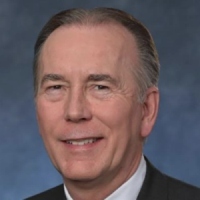
John Sebastian MBA
John Sebastian is the McKamish director of construction management and a professor of civil and environmental engineering at the University of Pittsburgh, where he leads the university’s construction management programs and teaches at both the undergraduate and graduate levels.
Alongside his academic role, he heads Sebastian Consulting Solutions, LLC, drawing on more than 35 years of experience with major national and international contractors, including leadership positions at Dick Corporation and dck Worldwide. His career spans numerous market sectors, including hospitality and aviation, education, energy, and healthcare, and includes oversight of major design-build, construction management, and general contracting projects, with more than three million square feet of LEED-certified construction to his credit.
Sebastian has contributed to several high-profile projects, including Union Station’s historic renovation, PNC Park, Ronald Reagan Washington National Airport, The Atlantis Resort, and The Venetian. A LEED-accredited professional, he holds both a BS in civil engineering and an MBA from the University of Pittsburgh and remains active in industry and community leadership through service with GSA, the VA, Sarah Heinz House, Rebuilding Together Pittsburgh, and the ACE Mentor Program.

Jon Reifschneider, MS, MBA
Jon Reifschneider is executive in residence at Duke University’s Pratt School of Engineering, where he is the founding director of the master of engineering in artificial intelligence program and executive director of the AI for product innovation master’s program. At Duke, he also leads the Center for Research & Engineering of AI Technology in Education (CREATE), an applied research lab focused on enhancing teaching and learning through AI.
Prior to his academic roles, Jon spent over 15 years in industry developing advanced analytics products, most recently as Senior Vice President at DTN, where he led the Weather Analytics division. His predictive systems have been deployed across the transportation, aviation, and energy sectors. Reifschneider is also the co-founder and CEO of Inquisite AI, a leading platform for research and science teams that leverages artificial intelligence.
Reifschneider holds a BS in Mechanical Engineering from the University of Virginia, a Master of Engineering Management from Duke University, an MS in Analytics from Georgia Tech, and a Global MBA from EBS University of Business and Law in Germany.
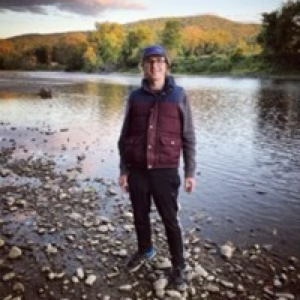
Jonathan K. Nelson, PhD
Dr. Jonathan Nelson is an assistant professor of geography and director of GIS professional programs at the University of Wisconsin-Madison. He is an educator and researcher in geographic information science and technology, who is passionate about leveraging maps, geovisual analytics, and human-centered design principles to make spatial data more accessible, legible, and actionable to broad and diverse audiences.
His motivation as a scholar is to contribute to bridging the analytical divide between experts in spatial data science and individuals not trained in the discipline but who seek to understand and make informed decisions based on spatial data. This overarching goal is inspired by over a decade of work in academia, government, and the private sector, focused on implementing cartographic design strategies to address critical challenges in a wide variety of application areas, including environmental science, fitness and personal health, politics, socioeconomics, transportation, and urban planning.
Dr. Nelson's work has been published in Cartography and Geographic Information Science, the International Journal of Human-Computer Studies, and the International Journal of Digital Earth. He received his PhD and MS from Pennsylvania State University and a BS from the University of New Mexico.
Joseph Tracy, PhD
Dr. Joseph Tracy is a university faculty scholar and professor of materials science and engineering at North Carolina State University. He received his PhD from the Massachusetts Institute of Technology and his BS in chemistry from UC Santa Barbara. He pursued post-doctoral studies at the University of North Carolina at Chapel Hill.
Dr. Tracy’s research focuses on the synthesis, characterization, self-assembly, and applications of noble metal, magnetic, and multifunctional nanoparticles. Incorporating these materials in elastomers, shape memory polymers, and hydrogels can make them responsive to magnetic fields and light for untethered soft robotics.
Dr. Tracy received an NSF CAREER Award in 2011 and a Humboldt Research Fellowship in 2018. At NC State, he has been recognized with the 2014 Alcoa Foundation Engineering Research Award, and in 2015 was selected as a University Faculty Scholar. Dr. Tracy is a Fellow of the Royal Society of Chemistry (FRSC).
Julius Schoop, PhD
Dr. Julius Schoop is Ervin J. Nutter associate professor and director of graduate studies in manufacturing systems engineering in the Department of Mechanical and Aerospace Engineering at the University of Kentucky. He also serves as director of the graduate certificate in manufacturing systems and is a core faculty member in the Institute for Sustainable Manufacturing.
Dr. Schoop earned his PhD in materials science engineering from the University of Kentucky and holds a bachelor of science in chemical physics from Centre College. His research leverages advanced in-situ characterization techniques to transform advanced manufacturing processes into “surface engineering” techniques that improve the life-cycle performance of turbine blades and air frames. His team is currently developing physics-informed modeling to reduce costs and lead time while improving performance and sustainability in the automotive, aerospace, and defense industries.
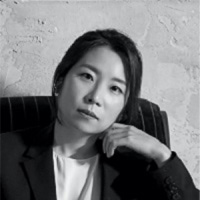
Jung-Eun Kim, PhD
Dr. Jung-Eun Kim is an assistant professor of computer science at North Carolina State University. She received her BS and MS in computer science and engineering at Seoul National University, and her PhD in computer science at the University of Illinois at Urbana-Champaign. Before joining the faculty at NCSU, Dr. Kim was an assistant professor of electrical engineering and computer science at Syracuse University and an associate research scientist in computer science at Yale University.
Dr. Kim’s research focuses on the bias and efficiency of AI and deep learning. She is particularly interested in the tradeoffs between performance, resource consumption, and other factors when designing robust, reliable, and sustainable models. She has served on the program committee of the Association for the Advancement of Artificial Intelligence (AAAI), the International Joint Conference on Artificial Intelligence (IJCAI), the Design Automation Conference (DAC), and the Design, Automation, and Test in Europe (DATE) Conference.
Kara Kockelman, PhD
Dr. Kara Kockelman is the Dewitt Greer Centennial Professor of Transportation Engineering at the University of Texas and a leading expert on autonomous vehicles and traffic engineering. Among her many honors, she has received the Beijing Overseas Talent Pool Award, the Google Research Award, the James Laurie Prize in Transportation Engineering, the Walter L. Huber Research Prize in Transportation Engineering, and the Young Researcher’s Award from the Transportation Research Board’s Committee on Statistical Methods.
Dr. Kockelman has authored or contributed to more than 175 academic papers, books, and articles. She holds a bachelor's, a master's and a doctorate in civil engineering, as well as a master's in city planning—all from the University of California, Berkeley.
Karen Horting, CAE
Karen Horting is the Executive Director and CEO for the Society of Women Engineers (SWE), a position she’s held since 2014. In her prior role as Deputy Executive Director, Horting oversaw the Society’s professional development, K-12 outreach, the annual conference, and international expansion.
Prior to joining SWE, Horting worked for both the New York Academy of Sciences and the American Association for the Advancement of Science. She currently serves on the Leadership Circle of the 50K Coalition, the FIRST Robotics Board of Directors, the Automation Federation Board of Directors, the STEM Ed Coalition Board of Directors, and the Association Forum CAE Working Group.
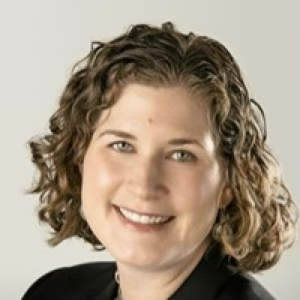
Karen M. Feigh, PhD
Dr. Karen M. Feigh is a professor and associate chair for research in the School of Aerospace Engineering at Georgia Tech, where she also directs the Cognitive Engineering Center. With a courtesy appointment in the School of Interactive Computing, her research focuses on computational cognitive modeling, human-autonomy teaming, and the design of cognitive work support systems to enhance performance in complex socio-technical environments.
Dr. Feigh has over 14 years of applied experience in domains ranging from air traffic control and aviation operations to spaceflight and undersea warfare. She has led or co-led numerous FAA, NASA, ONR, NIA, and NSF-funded projects, and has published extensively in cognitive engineering with a focus on aviation. She serves as Associate Editor for the Journal of Cognitive Engineering and Decision Making and is a past Chair of the HFES Cognitive Engineering and Decision Making Technical Group.
She earned her BS and PhD from Georgia Tech in aerospace engineering and industrial & systems engineering, respectively, and an MPhil in aeronautics from Cranfield University as a Marshall Scholar. Her honors include the NSF Graduate Research Fellowship, Zonta International’s Amelia Earhart Fellowship, and the AIAA Wilbur and Orville Wright Graduate Award.
Kartik Chandran, PhD
Dr. Kartik Chandran, a professor in the Department of Earth and Environmental Engineering at Columbia University, is an American environmental engineer focusing on environmental molecular and microbiology, biotechnology, and engineering. He is a world-renowned expert on wastewater treatment and resource recovery. His research primarily focuses on uncovering the molecular microbial ecology and metabolic pathways of the microbial nitrogen cycle.
The practical applications of his work include developing sustainable approaches to sanitation, energy and resource-efficient treatment of nitrogen-containing wastewater streams, and innovative models for resource recovery. He was a co-author of the “Environmental Engineering for the 21st Century: Addressing the Grand Challenges” report published in 2019 by the National Academies.
Kathleen Kosmoski
Kathleen Kosmoski is the manager of workforce development at the American Society of Mechanical Engineers (ASME). In this position, Kosmoski helps to refine and implement the Society’s strategic direction for workforce development and manages and contributes to the creation of new programs and partnerships that address the projected mechanical engineering and technical workforce shortage, including ASME’s Community College Engineering Pathways pilot program.
Kosmoski earned a bachelor of arts degree in community health and a master of science degree in health promotion from Purdue University in West Lafayette, Ind. She is a past president and current board member of the Georgia Continuing Education Association (formerly Georgia Adult Education Association).
Kathryn Caggiano, PhD
Dr. Kathryn E. Caggiano is a professor of practice in Cornell Engineering’s School of Operations Research and Information Engineering (ORIE), where she also serves as associate dean overseeing the master of engineering (MEng) programs throughout the College of Engineering.
With a PhD in operations research from Cornell and a BS in mathematics from the College of William & Mary, Dr. Caggiano has focused her career on developing practical mathematical models to improve decision-making in large-scale production and distribution systems, working with organizations like Verizon Wireless, Cisco, and NASA. Before returning to Cornell, she taught at the University of Wisconsin–Madison’s business school and gained industry experience with Price Waterhouse and PeopleSoft in supply chain consulting. Her leadership of ORIE’s MEng program earned multiple nominations for the prestigious INFORMS UPS George D. Smith Prize.
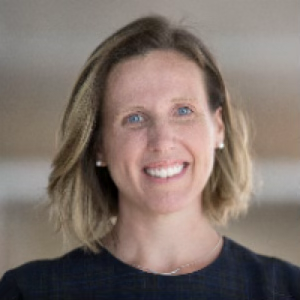
Krista Rule Wigginton, PhD
Dr. Krista Rule Wigginton is a professor of environmental engineering and the associate dean for graduate & professional education in the College of Engineering at the University of Michigan. Her research team focuses on environmental pathogens, developing novel detection methods, studying their fate in treatment systems, and advancing wastewater-based epidemiology, including pivotal contributions during the Covid-19 pandemic.
Dr. Wigginton has received major awards, including the NSF CAREER Award and the Water Research Foundation's Paul L. Busch Award, and has helped secure over $25 million in research funding. In addition to her research, she is recognized as a dedicated teacher and mentor, having guided numerous undergraduate and graduate students and developed several core courses. In her leadership roles, she has worked to expand and innovate graduate programs, strengthen recruitment and retention efforts, and foster an inclusive, supportive community for graduate and professional students.
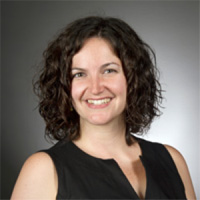
Kristen Parrish, PhD
Dr. Kristen Parrish is an associate professor and graduate program chair for the construction management and technology degrees in the School of Sustainable Engineering and the Built Environment, one of the Ira A. Fulton Schools of Engineering at Arizona State University.
Dr. Parrish’s expertise is in energy-efficient building design and construction. In particular, she explores how non-technological barriers to energy efficiency influence design and construction processes and develops novel approaches to address these barriers. Her work also explores the planning and delivery processes for capital projects. She has co-developed several tools that assist capital project teams in planning and has supported efforts to integrate energy efficiency into design standards and guidelines at ASU and other institutions. Finally, her work explores how to create more inclusive classrooms and cultures for engineering and science at ASU and beyond.
Dr. Parrish is the associate director of the RISE (Research in Inclusive STEM Education) Center at ASU and a member of the Ira A. Fulton Schools of Engineering Inclusion Faculty Advisory Council (IFAC). She is a member of the American Society of Civil Engineers, the Society of Women Engineers, and the American Society for Engineering Education.
Leigh McCue-Weil, PhD
Dr. Leigh McCue is a professor and chair of the Department of Mechanical Engineering at George Mason University. She served as executive director of the American Society of Naval Engineers from June 2015 to December 2018.
Dr. McCue’s research focuses on maritime robotics, nonlinear and chaotic vessel dynamics, and computational fluid dynamics, with an emphasis on workforce development. Her work has been supported by federal and military agencies, including the Office of Naval Research, the National Science Foundation, NASA, and the U.S. Coast Guard, and she has collaborated with the Naval Surface Warfare Center on applied engineering research.
Dr. McCue holds a BSE in mechanical and aerospace engineering from Princeton University. She earned her MSE in aerospace engineering, her MSE in naval architecture and marine engineering, and her PhD in naval architecture and marine engineering, all from the University of Michigan.
Leilei Duan, PhD
Dr. Leilei Duan is a lecturer with the Spatial Sciences Institute at the University of Southern California. She earned her PhD in design, construction, and planning from the University of Florida. Prior to joining the faculty at the Spatial Science Institute, Duan was an instructor for 3D modeling, visualization, and simulation at the University of Florida. Her current research and teaching interests include the application of GIS in urban planning and other aspects of GeoDesign.
Duan has presented her research at numerous conferences, including those of the Geodesign Summit and the American Association of Geographers. She is also the founder and administrator of the GeoDesign Wiki website
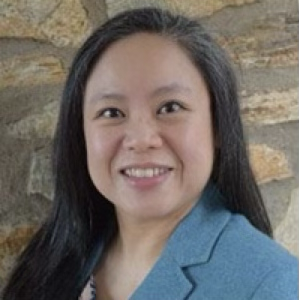
LiKang Chin, PhD
Dr. LiKang Chin is the graduate program director of the School of Engineering and an assistant teaching professor in the Department of Biomedical Engineering at Widener University. She joined the faculty in January 2021. The focus of her research is to understand the role of mechanobiology in adipocyte cell function and the progression of obesity. Using mechanical testing, molecular biology, and microscopy techniques, she has studied soft tissue mechanics, mechanobiology, and biomaterials in various tissue systems, such as adipose, tendon, and liver. Her research and collaborations have been published in high-impact journals and has resulted in several US patents.
At Widener University, Dr. Chin maintains an active research program aimed at training future engineers. She holds a BSE in bioengineering from the University of Pennsylvania and an MS and PhD in biomedical engineering from Case Western Reserve University. She completed her postdoctoral training at the Institute for Medicine and Engineering at the University of Pennsylvania and subsequently served as the technical director of the Cell and Tissue Core of the Physical Sciences Oncology Center at the University of Pennsylvania before joining the faculty at Widener.
Lionel Scharly
Lionel Scharly is the strategic architectural advisor at Real Estate Bees and a licensed, registered architect specializing in architectural design, furniture design, and BIM Technology. His public architecture, commercial, cultural, retail, and residential projects focus heavily on integrating the environment by implementing groundbreaking technologies.
Scharly created his startup in 2007, after several years working as art director and international design manager for big design companies in Europe, such as projects for Dior, Peugeot, Coca-Cola, Michelin, Estee Lauder, Air France, and in the video game industry.
Lisa Marshall, PhD
Dr. Lisa Marshall is the the president of the American Nuclear Society and has been an active member, with leadership roles, since 2005. With over 20 years of engineering education experience spanning pre-college to graduate studies, Marshall is the inaugural director of outreach, retention, and engagement (starting in 2001), and the inaugural assistant extension professor (starting in 2023) at North Carolina State University Department of Nuclear Engineering.
Dr. Marshall is a member of the Organization of Economic Cooperation and Development (OECD) Nuclear Energy Agency (NEA) Council of Advisers and the NEA High-Level Group on Improving the Gender Balance in the Nuclear Sector. She chairs the NEA Global Forum Working Group on Building a Pipeline of STEM Professionals and sits on the Task Force on Achieving Inclusivity and the Working Group on ‘Rethinking the Relationship between Nuclear Energy and the Society.’
Massimiliano Moruzzi
Massimiliano (Max) Moruzzi is co-founder and CEO of Xaba (Xaba.ai), a startup focused on intelligent automation to enable sustainable manufacturing. Moruzzi has an extensive 15-year career as lead scientist and business innovator in sustainable materials and disruptive manufacturing process automation, including work for Autodesk.
As the lead scientist and director of business development for Magestic Inc., he was responsible for revolutionizing the business models of major OEMs in the aerospace (Boeing, Airbus, Lockheed Martin) and automotive (FCA, GM, FORD, Lamborghini, Ferrari) industries.
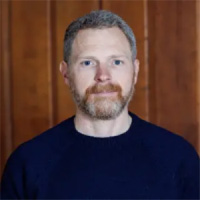
Matthew Eisaman, PhD
Dr. Matthew Eisaman is a tenured associate professor at Yale University in the Department of Earth & Planetary Sciences and the Yale Center for Natural Carbon Capture. His expertise extends beyond academia to the entrepreneurial world, where he co-founded Ebb Carbon—a pioneering startup in San Carlos, California—dedicated to revolutionizing ocean-based carbon dioxide removal and combating ocean acidification through electrochemical ocean alkalinity enhancement.
He holds a PhD in physics from Harvard University and a bachelor of arts in physics from Princeton University. His research interest lies in utilizing Earth’s natural processes to mitigate the impacts of the climate crisis. Current projects include innovative approaches to ocean carbon dioxide removal; studying ramifications on marine life; enhancing Measurement, Reporting, and Verification (MRV) methods; and exploring integrative solutions such as the amalgamation of oceanic and geochemical carbon dioxide removal strategies.
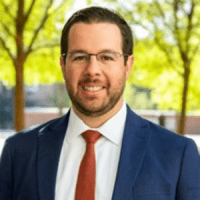
Michael A. Perez, PhD
Dr. Michael Perez is an assistant professor in the Department of Civil Engineering at Auburn University. He specializes in construction and post-construction stormwater practices, methods, and technologies. Dr. Perez earned his MS and his PhD in civil engineering from Auburn University.
At Auburn University’s Erosion and Sediment Control Testing Facility, Dr. Perez’s research investigated and improved the Alabama Department of Transportation's sediment basin and inlet protection standard practices through large-scale testing. He also assisted in the design and development of a rainfall simulator, sediment barrier, and curb inlet testing apparatus, and conducted investigations into the application of unmanned aerial vehicles for construction and stormwater inspections.
Before joining Auburn, Dr. Perez served as an assistant professor at Iowa State University and worked as a consultant in Atlanta, where he managed MS4 programs for the Georgia Department of Transportation and designed erosion control, low-impact development, and green infrastructure practices for roadway projects.
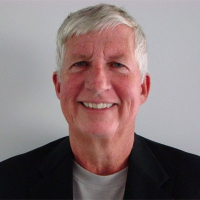
Michael Grieves, PhD, MBA
Dr. Michael Grieves is a world-renowned expert in digital twins and organizational digital transformation, focusing on product development, engineering, systems engineering, manufacturing (including additive manufacturing), and operational sustainment. He is the original thinker behind the concept of digital twins and has authored influential books on product lifecycle management and key papers and chapters on digital twins.
Dr. Grieves has provided consultancy and conducted research at prestigious global entities such as NASA, Boeing, Unilever, Newport News Shipbuilding, and General Motors.
With over 50 years of combined executive and technical experience in large corporations and entrepreneurial ventures, Dr. Grieves brings a wealth of knowledge. He has held senior executive positions in Fortune 1000 companies and startups, established and led a national systems integration firm to go public, and chaired audit and compensation committees.
Additionally, his board service spans multiple countries, including the United States, China, and Japan. He holds a bachelor’s science in computer engineering from Michigan State University, an MBA from Oakland University, and a doctorate from Case Western Reserve University.
Michael Howard, PhD
Dr. Michael Howard is an assistant professor of chemical engineering at Auburn University. He holds a bachelor of science in chemical engineering from Penn State University and completed his PhD in chemical engineering at Princeton University.
Dr. Howard’s research uses modeling and simulation to shorten the time and reduce the cost of designing soft materials. A key focus is on modeling self-assembling materials under realistic processing and use conditions, which are difficult to describe because they are often far from equilibrium. He received an ACS PRF Doctoral New Investigator grant in 2023 and NSF CAREER award in 2025.
Michael Pelosi
Dr. Michael J. Pelosi is an associate professor of software engineering in Mercer University’s School of Engineering. He holds a PhD in computer science and information systems from Nova Southeastern University, along with an MPA, MBA, and BS in business administration from City University of Seattle.
With over 30 years of teaching experience, Dr. Pelosi has instructed a wide range of computer science and software engineering courses, predominantly at the graduate level.
Dr. Pelosi’s research interests include artificial intelligence, software engineering, defense applications, and photovoltaic energy modeling. A U.S. Army veteran and entrepreneur, he has also successfully founded and operated a solar energy simulation software company, contributing to research for Sandia National Labs and the National Institute of Standards and Technology. He holds three U.S. patents and is currently focused on securing DARPA research funding.
Michael Todd, PhD
Dr. Michael Todd, a Professor of Structural Engineering at UC San Diego, is a leading researcher in the structural health monitoring of civil, mechanical, and aerospace engineering projects. As one of the pioneers of “smart structures”—self-measuring systems which send performance feedback—his adeptness with both hardware and software have made him a leading structural engineer internationally today.
Dr. Todd received numerous awards, including the Alan Berman NRL Publication Award (1999), NRL Patent Awards (2003 and 2004), the Fifth International Workshop on Structural Health Monitoring’s Professional of the Year (2005), and the Von Liebig Entrepreneurship Award (2005). He’s a member of UCSD’s OUT List—an organization of LGBTQ faculty and administrative professionals—as well as a member of QuEST, an LGBTQ engineering society based in San Diego.
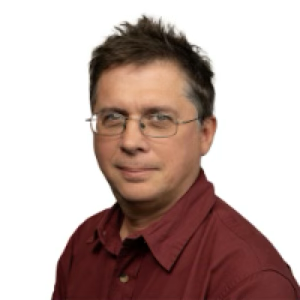
Mihail Sichitiu, PhD
Dr. Mihail L. Sichitiu is a professor in the Department of Electrical and Computer Engineering at North Carolina State University. His research focuses on wireless networking, with expertise in wireless sensor networks, ad hoc networks, and cyber-physical systems. He has contributed extensively to the field through his scholarly publications, research projects, and mentorship of graduate students.
With a strong background in both academia and applied research, Dr. Sichitiu has been involved in advancing wireless communication technologies and network protocols. He is an active research community member, frequently publishing in top-tier journals and conferences. Through his work, he continues to drive innovation in wireless systems, influencing both academic and industry advancements. He holds a bachelor of engineering and a master of science in electrical engineering from the Polytechnic University of Bucharest, Romania. He later earned a master of science and a PhD in electrical engineering from the University of Notre Dame.
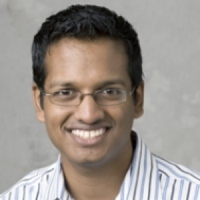
Milind Kulkarni, PhD
Dr. Milind Kulkarni is the Michael and Katherine Birck Head and a professor in the Elmore Family School of Electrical and Computer Engineering at Purdue University, with a courtesy appointment in computer science. His research centers on programming languages, compilers, and runtime systems that enable efficient programming and high performance on complex architectures.
A founding member of the Center for Programming Principles and Software Systems, Dr. Kulkarni leads collaborative work across programming languages, formal methods, AI, security, and computational science. He earned his degrees in computer science and computer engineering from North Carolina State University and his PhD in computer science from Cornell University.
Since joining Purdue’s ECE faculty in 2009, Dr. Kulkarni has been honored with numerous awards, including the NSF CAREER Award, the Presidential Early Career Award for Scientists and Engineers, and the university’s top undergraduate teaching award. Outside of academia, he enjoys reading, playing piano and mandolin, and cooking.
Morris Wang, PhD
Dr. Morris Wang is a professor of materials science and engineering at the University of California, Los Angeles Samueli School of Engineering. He received his PhD in materials science from Johns Hopkins University.
Dr. Wang’s research group’s interests bridge the synthesis of nanostructured materials, additive manufacturing, and understanding the underlying mechanisms that control the mechanical behavior of various advanced materials (metals and alloys, carbon-based materials, 2D materials, and porous materials). They apply in situ characterization techniques (e.g., in situ synchrotron x-ray diffraction, computed tomography, transmission electron microscopy) to probe how the defects interact with surfaces or interfaces. The group’s research is focused on achieving high-performance structural materials via microstructure engineering.
Oleg Zikanov, PhD
Dr. Oleg Zikanov is a professor and chair of mechanical engineering at the University of Michigan-Dearborn. He earned his MS in mechanics from Moscow State University and his PhD in fluid dynamics and plasma physics from the Institute for Problems in Mechanics.
Before joining the faculty at UM-Dearborn, Dr. Zikanov conducted research at TU Darmstadt, TU Dresden, and Florida Atlantic University. His areas of research interest include computational fluid dynamics and heat transfer; magnetohydrodynamics; liquid metal technologies in energy applications; thermal convection; and hydrodynamic instabilities and transition to turbulence. He is the author of Essential Computational Fluid Dynamics.
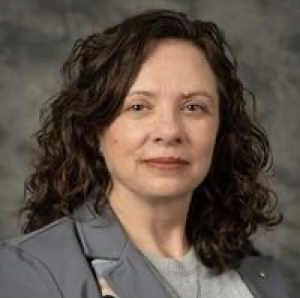
Pamela Abshire, PhD
Dr. Pamela Abshire is chair of the Department of Electrical and Computer Engineering in the College of Engineering and Applied Sciences at Stony Brook University. She was previously affiliated with the Department of Electrical and Computer Engineering at the University of Maryland, College Park, which she joined in 2001. She also maintained an appointment with the Institute for Systems Research and affiliations with the Fischell Institute for Biomedical Devices, the Maryland NanoCenter, and the Maryland Robotics Center.
Dr. Abshire earned her bachelor of science in physics, with honor, from the California Institute of Technology, and a master of science and a doctorate in electrical and computer engineering from Johns Hopkins University. A Fellow of the IEEE, she has served on advisory committees for the US Department of Commerce and DARPA and in leadership roles for IEEE, including the IEEE Circuits and Systems Society Board of Governors and as General Co-Chair for IEEE ISCAS and IEEE MWSCAS.
Patrick Appiah-Kubi, PhD
Dr. Patrick Appiah-Kubi is a distinguished figure in cloud computing and cybersecurity technology. He serves as portfolio director and associate professor at the University of Maryland Global Campus (UMGC). He holds a PhD in computer science, an MS in electronics and computer engineering technology, and a BS in computer science.
Before his tenure at UMGC, Dr. Appiah-Kubi led initiatives as an assistant professor and IT program director at Indiana State University. His research interests include bare machine computing systems, computer networks, cloud computing, big data, database systems, and cybersecurity. Dr. Appiah-Kubi is an AWS faculty cloud ambassador and a member of the IEEE and the Association for Computing Machinery.
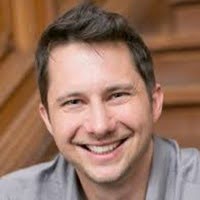
Paul Laskowski, PhD
Dr. Paul Laskowski is an adjunct assistant professor at the University of California, Berkeley, where he teaches courses in data science. He earned his AB in applied mathematics from Harvard University and his PhD in information management and systems from UC Berkeley.
Dr. Laskowski studies the interaction between computer networks and economic incentives. To understand how modern network industries differ from more traditional ones, he creates game-theoretic modeling frameworks that incorporate network topology as a critical input—he is especially interested in applying these to contemporary policy debates, including digital content distribution, future internet architectures, and net neutrality.
Before coming to Berkeley, Dr. Laskowski was the lead developer for Project INDIGO, which stands for Information Diffusion and Growth. This project was started by Marshall Van Alstyne of the University of Michigan's School of Information as a tool for the development and communication of information models. In recent years, the tool has grown into a general development environment for agent-based simulations.
Peter DeCarlo, PhD
Dr. Peter DeCarlo is an associate professor of environmental health and engineering at Johns Hopkins Whiting School of Engineering. He studies atmospheric air pollution with applications to ambient air quality, including atmospheric aerosols and emissions from anthropogenic activities including natural gas development.
Dr. DeCarlo has published extensively in the areas of atmospheric aerosols (particulate matter), air quality, and climate. He has performed air quality measurements all over the world and visited many Congressional offices to discuss climate change and air quality issues. He received his PhD in atmospheric science from the University of Colorado. He earned a postdoctoral fellowship at the Paul Scherrer Institute in Switzerland and an AAAS Science Policy Fellowship in Washington DC.
Peter Hosemann, PhD
Dr. Peter Hosemann is a professor in the Department of Nuclear Engineering at the University of California Berkeley, where he is also the department chair. He received his MS and PhD degrees in material science from Montanuniversität Leoben, Austria.
Prior to joining the Department of Nuclear Engineering at UC Berkeley, Dr. Hosemann was a graduate research assistant and a post-doc at Los Alamos National Laboratory. His research features experimental material science for nuclear applications, with a focus on the structural materials used for nuclear components.
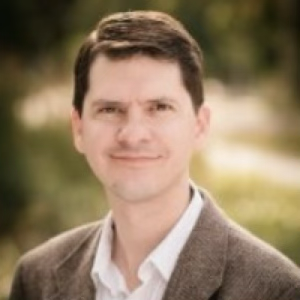
R. Andrew Swartz, PhD
Dr. R. Andrew Swartz is an associate professor in the Department of Civil, Environmental, and Geospatial Engineering at Michigan Technological University. With expertise in structural engineering, he focuses on areas such as structural analysis, bridge engineering, and engineering education.
Dr. Swartz is dedicated to advancing the field through both research and teaching, preparing future engineers with the knowledge and skills necessary to tackle complex infrastructure challenges.
In addition to his academic work, Dr. Swartz is actively involved in applied engineering projects and collaborations with industry and government agencies. His commitment to mentorship and innovation in engineering education has made a lasting impact on students and the broader civil engineering community. He holds a BS in civil engineering from Michigan Technological University, as well as an MS in civil engineering, an MS in electrical engineering: systems, and a PhD in civil engineering—all from the University of Michigan.
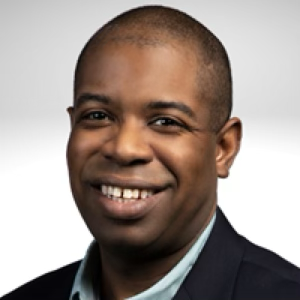
Reginald E. Rogers, Jr, PhD
Dr. Reg Rogers is an associate professor in the Department of Chemical and Biomedical Engineering. Prior to joining the faculty at the University of Missouri, he served as an associate professor in the Department of Chemical Engineering at Rochester Institute of Technology (RIT).
Dr. Rogers’ research interests are focused on improved water resources using novel nanomaterials (e.g. carbon nanotubes). His group’s focus is on developing 2D and 3D structures specifically tailored toward removal of targeted contaminants from water systems. In addition, his group also has an interest in developing carbon nanomaterial-based structures for energy storage applications, including advanced sodium-ion systems and supercapacitors.
Dr. Rogers has been recognized for his teaching, research and service efforts through numerous seminars and awards. Notable awards include the 2021 Mentor on the Map Award from the National Organization for the Professional Advancement of Black Chemists and Chemical Engineers, the 2019 ACS Stanley C. Israel Regional Award for Advancing Diversity in the Chemical Sciences, and the 2018 Dr. Janice A. Lumpkin Educator of the Year Award from the National Society of Black Engineers.
Riley Dvorak, PE
Riley Dvorak is president-elect of the Minnesota section of the American Society of Civil Engineers (ASCE) and currently works as a professional engineer at Oldcastle Infrastructure. With more than a decade of experience in the concrete pipe and materials sector, including a long tenure at Rinker Materials, he supports drainage and infrastructure design for projects across Minnesota and surrounding states.
A graduate of Minnesota State University, Mankato, Dvorak is a licensed professional engineer. Based in Prior Lake with his wife and three young sons, he applies his technical background and industry knowledge to help shape civil engineering standards and infrastructure practices at both the state and national levels.
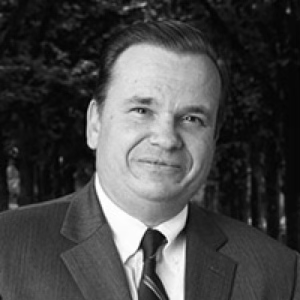
Robert Amundsen, PhD
Dr. Robert Amundsen is an associate professor and director of the MS in energy management program in the College of Engineering and Computing Sciences at New York Institute of Technology. Since joining New York Tech in 1986, he has been a leader in advancing education and practice in alternative energy systems and sustainability. Each year, he helps organize the university’s annual Energy Conference, which brings together leading experts in energy and environmental issues.
Dr. Amundsen is a Fellow of the Association of Energy Engineers (AEE) and was inducted into the AEE Energy Managers Hall of Fame in 2018. He also served as president of the Long Island Chapter of AEE and has received the Environmental Educator of the Year Award and the Energy Professional Development Award. He holds dual BS degrees in Physics and Astronomy, and in Engineering and Applied Science, from the University of Rochester. He earned his MS and PhD in energy management and policy at the University of Pennsylvania.
Robert C. Voigt, PhD
Dr. Robert Voigt is a professor of industrial engineering at Penn State University, a position he’s held for over 30 years. He earned his BS, MS, and PhD in metallurgical engineering from the University of Wisconsin-Madison. Prior to joining the faculty at Penn State, Dr. Voigt served as a professor at the University of Kansas.
Dr. Voigt’s research is largely focused on manufacturing, with particular areas of interest including metal casting, pollution prevention, welding, heat treatment, physical metallurgy, and dimensional control. Throughout his career at Penn State University, he has been awarded the Outstanding Teacher Award, the Outstanding Research Award, and the Outstanding Advisor Award. Dr. Voigt is a fellow of the Society of Manufacturing Engineers.
Robert F. Kirsch, PhD
Dr. Robert Kirsch is the Allen H. and Constance T. Ford professor and chair of biomedical engineering at Case Western Reserve University’s Case School of Engineering. He is also principal investigator at the Case-Coulter Translational Research Partnership and Executive Director at the Center for Functional Electrical Stimulation at the Cleveland VA Medical Center.
Dr. Kirsch’s research focuses on the restoration of arm movements to individuals with complete paralysis of arm muscles due to spinal cord injury or other neurological disorders using functional electrical stimulation (FES), as well as high performance user command interfaces such as brain computer interfaces and advanced prosthetic user interfaces. He received his BS in electrical engineering from the University of Cincinnati, and his MS and PhD in biomedical engineering from Northwestern University. Dr. Kirsch completed postdoctoral research at McGill University.
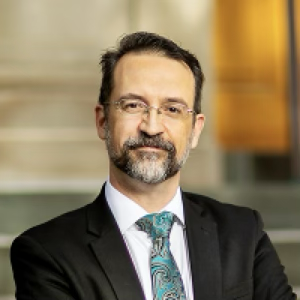
Robert Ghrist, PhD
Dr. Robert Ghrist is the Andrea Mitchell Penn Integrating Knowledge Professor of Mathematics and Electrical & Systems Engineering at the University of Pennsylvania, holding appointments in both the School of Arts & Sciences and the School of Engineering & Applied Science. A classically trained engineer, he earned his BS in mechanical engineering from the University of Toledo, followed by an MS and PhD in mathematics from Cornell University under the supervision of Philip Holmes.
Dr. Ghrist is a pioneer in applying topological and geometric methods—such as algebraic topology, sheaf theory, CAT(0) geometry, and braid theory—to problems in sensor networks, robotic motion planning, dynamical systems, hydrodynamics, and data science. His honors include the Presidential Early Career Award in 2002, the Chauvenet Prize in 2013 for his influential expository essay Barcodes: The Persistent Topology of Data, and delivering the 2014 Gauss Lectureship from the German Mathematical Society.
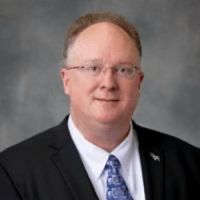
Robert Hyers, PhD
Dr. Robert Hyers is the George I. Alden professor and head of the Department of Mechanical & Materials Engineering at Worcester Polytechnic Institute. He holds an SB in materials science and engineering and a PhD in materials engineering, both from MIT.
Dr. Hyers works at the intersection between computers and the physical world, with a particular interest in high-temperature materials and their processing systems. His recent work includes model-based experiments on the International Space Station, including magnetohydrodynamic effects on nucleation and solidification, novel methods for measurement of properties of matter at high temperatures, and a novel approach to thermal management in spacecraft propulsion.
Dr. Hyers also has extensive experience in startups, entrepreneurship, and innovation. In addition to leading a privately funded industrial startup, he co-founded an educational program in entrepreneurship and innovation that grew to over 200 students per semester.
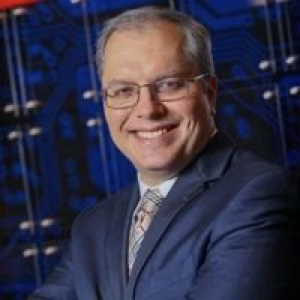
Robert Kukta, PhD
Dr. Robert Kukta is senior associate dean for education and innovation in the College of Engineering and Applied Sciences (CEAS) at Stony Brook University. He previously served as acting dean of CEAS and has more than two decades of faculty service, including roles as associate dean for undergraduate education and program director in mechanical engineering. He earned his PhD in engineering from Brown University, completed postdoctoral research at Caltech, and holds master’s degrees in applied mathematics and engineering as well as a BS from the University of Pittsburgh.
Dr. Kukta’s research focuses on the mathematical modeling and simulation of microstructural evolution in solids, especially in thin-film configurations relevant to microelectronics. He is a strong advocate for experiential learning, having helped establish Stony Brook’s Vertically Integrated Projects Program and a global innovation field school, and has led multiple CEAS initiatives, including ABET accreditation, strategic planning, and industry partnerships.
Robert MacCurdy PhD
Dr. Robert MacCurdy is an assistant professor of mechanical engineering at the University of Colorado Boulder, where he leads the Matter Assembly Computation Lab (MACLab). He is developing new algorithms, materials, and fabrication tools to automatically design and manufacture electromechanical systems, focusing on robotics.
Dr. MacCurdy did his PhD work with Hod Lipson at Cornell University and his postdoctoral work at MIT with Daniela Rus. He holds a BA in physics from Ithaca College, a BS in electrical engineering from Cornell University, and an MS and PhD in mechanical engineering from Cornell University.
Robert Ubell
Robert Ubell is a nationally recognized pioneer in online education, known for his innovative leadership and influential work in digital learning. As vice dean emeritus of online learning at NYU Tandon School of Engineering, he played a key role in transforming the school into a leader in virtual education. He has consulted with top institutions and education technology companies—including Coursera, NYU, The New School, and others—to help develop, scale, and refine online learning strategies. A prolific writer and speaker, Ubell regularly contributes to the national conversation on digital pedagogy through books, articles, podcasts, and academic forums. His work continues to shape the evolution of online education, offering practical and forward-thinking solutions to institutions worldwide.
Roshan Peiris, PhD
Dr. Roshan Peiris is an assistant professor in the School of Information at Golisano College of Computing and Information Sciences at Rochester Institute of Technology. He teaches courses in human-computer interaction.
Dr. Peiris is also director of RIT’s Accessible and Immersive Reality (AIR) Lab, where he leads research to understand human abilities and develop innovative technologies and methods that enable, empower, and enhance human experiences and capabilities.
Ruth Charney, PhD
Dr. Ruth Charney is the President of the American Mathematical Society (AMS). She is also the Theodore and Evelyn Berenson Professor of Mathematics at Brandeis University, where she researches geometric group theory.
A past president of the Association for Women in Mathematics (AWM), Charney has served on various AMS committees since 1993, and in 2017 completed a five-year term on the Board of Trustees. She is a fellow of both AWM and AMS.
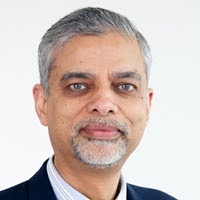
Sanjay Jain, PhD
Dr. Sanjay Jain is an associate industry professor in the Department of Decision Sciences at the School of Business at the George Washington University (GW). At GW, he teaches graduate classes in the MS programs in project management and business analytics, and in MBA and EMBA programs. He has also participated in delivering international executive programs in project management for GW.
Dr. Jain’s research interests are in the development and application of decision science techniques to complex systems with a current focus on smart manufacturing, supply chains, and project management. He has received research grants from the National Institute of Standards and Technology (the technical arm of the U.S. Department of Commerce) continuously for over 15 years that added up to nearly $1 million.
Dr. Jain has over 100 publications, including technical reports, papers in technical journals, and refereed conference proceedings. He served as an associate editor of the International Journal of Simulation and Process Modeling for a decade and as a member of the editorial board of International Journal of Industrial Engineering for more than 15 years.
Sara Rothe
Sara Rothe is the director of the Engineering Summer Program at the University of Wisconsin-Madison. She holds a bachelor’s degree in chemical engineering from the University of Illinois at Urbana-Champaign.
Rothe is an active member of the Society of Hispanic Professional Engineers (SHPE) and currently serves on the National Convention Planning Committee and is the advisor for the University of Wisconsin-Madison undergraduate student chapter.
Scotty Craig, PhD
Dr. Scotty D. Craig is an associate professor of human systems engineering at the Ira A. Fulton Schools of Engineering at Arizona State University and ASU Online. He serves as the ASU Learning Engineering Institute's director of research and evaluation and as director of the ASU Advanced Distributed Learning Partnership Lab.
Dr. Craig is a learning engineer with expertise in cognitive science, design science, and the science of learning, specifically learning technology. He has made contributions at the intersection of psychology, education, and technology within multimedia learning and virtual environments, as well as in the development and evaluation of learning technology within laboratory and applied settings.
Sha Viswanathan
Sha Viswanathan is a 14-year veteran at Microsoft, currently serving as a software engineering manager in the company’s cloud and AI division. He studied electrical and computer engineering at the University of Texas at Austin and moved to Seattle to start his career at Microsoft. His first five years at the company were spent in research and development of Internet of Things (IoT) when the concept was still in its formative stages. Now, Viswanathan hires and manages teams of engineers that have worked on projects that integrate AI into Windows and other Microsoft products.
Shauna Weaver
Shauna Weaver is the managing principal of Pape-Dawson’s San Antonio office, overseeing strategic and operational initiatives to ensure excellence in service delivery. With over 30 years at Pape-Dawson, she has been pivotal in some of the region’s most complex and impactful land development projects.
Weaver’s leadership has been instrumental in building strong client relationships and shaping the firm’s reputation as an industry leader. Beyond her role at Pape-Dawson, Weaver serves as the president-elect for the Texas Society of Professional Engineers (TSPE), advocating for continuing education, professional development, and community engagement in engineering.
Simon Nicholson, PhD
Dr. Simon Nicholson is an associate professor of international relations and interim associate dean for research at the American University. His work focuses on global environmental governance, global food politics, and the politics of emerging technologies, including climate engineering and carbon removal technologies.
Dr. Nicholson is co-founder of the Forum for Climate Engineering Assessment and the Institute for Carbon Removal Law and Policy. He also led two scholarly initiatives of the School of International Service and served as founding director of American University's cross-campus Center for Environment, Community, and Equity.
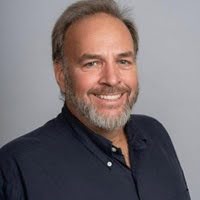
Stephen Wallace, DPS, MBA
Dr. Stephen Wallace is a professor of practice and program director for the bachelor’s of professional studies (BPS) in applied data and predictive analytics, knowledge management, cybersecurity administration, and computer programming at Syracuse University College of Professional Studies.
Previously, Dr. Wallace spent four years as a professor of practice developing and teaching data science classes at Syracuse’s iSchool. He also served as the program director for the MS in information systems at the iSchool for several months. Prior to his time at Syracuse University, Wallace spent 30+ years working in industry both as an entrepreneur and a C-level technology executive.
Dr. Wallace received his doctor of professional studies in computing from Pace University’s Seidenberg School of Computer Science and Information Systems. He holds an MBA from Rensselaer Polytechnic Institute’s Lally School of Management and a BS in operations management from Syracuse’s Whitman School of Management.
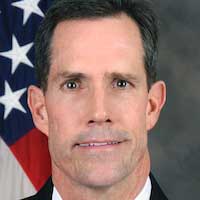
Steven D. Fleming, PhD
Dr. Steven D. Fleming is a professor of the practice of spatial sciences in the Spatial Sciences Institute at the University of Southern California Dornsife College of Letters, Arts, and Sciences. He earned his BS in computer science from West Point, his master’s degree in national security and strategic studies from the Naval War College, and both his master’s and his doctorate in geography from the University of Georgia. His research and teaching is focused on four areas: the applications of geospatial technologies for national defense; emerging terrestrial, airborne, and space-based image collection systems; online and blended training using mobile devices; and the dynamic mapping of coastal regions.
A retired colonel in the US Army, Fleming has command, staff, and combat experience, twice deployed in Operation Enduring Freedom. Prior to joining the faculty at USC, Fleming served as deputy head of the Department of Geography and Environmental Engineering at West Point. In addition to his role at USC’s Spatial Science Institute, Fleming is also a research professor with the USC’s Institute for Creative Technologies, a DoD-sponsored research center that works in collaboration with the US Army Research Laboratory (ARL).
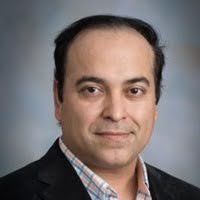
Sudeep Pasricha, PhD
Dr. Sudeep Pasricha is a Walter Scott Jr. College of engineering professor in the Department of Electrical and Computer Engineering, the Department of Computer Science, and the Department of Systems Engineering at Colorado State University. He is the director of the Embedded, High Performance, and Intelligent Computing (EPIC) Laboratory and the chair of computer engineering.
Dr. Pasricha has co-authored seven books, holds multiple patents, and has published more than 300 research articles in peer-reviewed journals and conferences, workshops, and books. He has given multiple invited keynotes at IEEE and ACM conferences on various topics that span optical computing, AI acceleration with silicon photonics, machine learning for IoT applications, sustainable data centers, and robust chip-scale networks. His research has been funded by various sponsors, including NSF, SRC, AFOSR, DOE, ORNL, DoD, Fiat-Chrysler, HPE, and NASA. He is a fellow of the IEEE, a fellow of AAIA, a distinguished member of the ACM, and an ACM distinguished speaker.
Tanima Chatterjee, PhD
Dr. Tanima Chatterjee is a professor of computer science at Boston University and the director of undergraduate studies in the faculty of computing and data science.
Dr. Chatterjee approaches big data sets using an interdisciplinary approach. During her postdoctoral research, she worked alongside a team of molecular biologists. Her teaching combines an educational approach aimed at teaching basic skill sets as well as higher-level competencies needed to excel in computer sciences.

Te Faye Yap, PhD
Dr. Te Faye Yap earned her PhD in mechanical engineering from Rice University in 2024, advised by Dr. Daniel Preston, and is currently continuing her research at Rice as a postdoctoral fellow. She will start her own lab as a tenure-track assistant professor at the University of Hawaii at Manoa in January 2025. She received her BS in mechanical engineering from the University of Louisiana at Lafayette.
In the spirit of developing innovative materials to advance the field of soft robotics, Dr. Yap was lead author of the study that pioneered the concept of necrobotics, which challenged the conventional methods of using biotic materials—inanimate materials derived from living organisms, like wood or leather—that often require substantial post-processing, and instead repurposed the inanimate body of a spider as a ready-to-use actuator.
Dr. Yap’s other research has focused on studying temperature-dependent reaction kinetics for various phenomena, as well as interfacial phenomena and wearable soft devices.
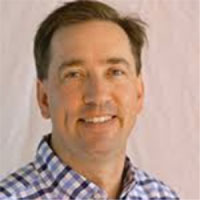
Thomas Harmon, PhD
Dr. Thomas Harmon is a founding faculty member and civil and environmental engineering professor at the University of California, Merced. He also serves as director of the Sierra Nevada Research Institute, which oversees the work of over 60 professional researchers and faculty members. Before joining UC Merced, he taught at the University of California, Los Angeles. His research and teaching interests revolve around developing innovative technologies and methods to sustainably monitor, model, and manage environmental systems.
In addition, he regularly works on identifying viable solutions for complex socio-environmental problems. Dr. Harmon holds a bachelor’s of science in civil engineering from Johns Hopkins University and a master's of science and PhD in environmental engineering from Stanford University. Working alongside other prominent environmental engineers and scientists, he is a co-author of the National Academies' 2019 report “Environmental Engineering for the 21st Century: Addressing the Grand Challenges.”
Tien Yee, PhD
Dr. Tien Yee is an assistant professor for the Department of Civil and Construction Engineering at Kennesaw State University (KSU). He joined the Department of Civil and Construction Engineering in fall 2013. Before joining the department, he had several years of civil engineering experience.
Dr. Yee specializes in the area of water resources. His research background involves numerical modeling of fluid flows. He is also very familiar with the physical modeling of pump stations.
His research interests includs computer and numerical modeling of fluid flows, physical modeling, and experimental studies of fluid phenomena. He is very interested in any research collaboration, consulting studies, or the sharing of research ideas and resources.
Tim Winston, PE
Tim Winston is a senior engineer with AtkinsRéalis, where he works in the Land Development group supporting complex commercial and municipal projects. He earned his bachelor’s degree in civil and environmental engineering from the University of Nevada, Las Vegas, and brings more than a decade of experience in commercial land development and utility design.
Winston has contributed to projects across Nevada, Texas, and Hawaii, with particular strength in municipal infrastructure. He regularly provides senior technical oversight and leads multidisciplinary project teams on large-scale developments. He also serves on the Nevada Society of Professional Engineers Southern NV Chapter Board of Directors.
Tricia Hatley, PE
Tricia Hatley is the 2020-2021 President of the National Society of Professional Engineers (NSPE). She serves on numerous committees within the organization. Tricia is a past President of the Texas Society of Professional Engineers, where she served in numerous leadership roles and is now a member of the Oklahoma Society of Professional Engineers.
Additionally, she is a Principal and Vice President at Freese and Nichols, Inc (FNI), an engineering, architectural, and environmental firm with offices throughout Texas, Oklahoma, Georgia, Florida, and North Carolina. She has been with FNI for 27 years, and prior to that, she worked at the Oklahoma Department of Transportation.
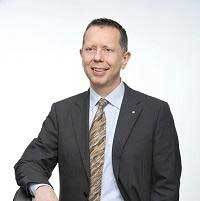
Vincenzo Piuri, PhD
Dr. Vincenzo Piuri is a Professor of Computer Engineering at the University of Milan, Italy, where he was the Department Chair from 2007 to 2012. He received his MS and PhD in computer engineering from Politecnico di Milano, Italy.
Dr. Piuri’s research and industrial application interests are in AI, intelligent systems, pattern analysis, machine learning, cloud computing, and digital architectures. As one of Italy’s leading scientists, he’s published over 400 scientific papers in international journals, international conferences, books, and book chapters.
Dr. Piruri has held several leadership roles at the Institute of Electrical and Electronics Engineers (IEEE) and is also the founder and co-chair of IEEE’s Environmental Engineering Initiative, an interdisciplinary forum for the environmental engineering community. Dr. Piuri is an IEEE Fellow, a member of IEEE Eta Kappa Nu, an Association for Computing Machinery (ACM) Distinguished Scientist, and a Senior Member of the International Network for Natural Sciences (INNS).
William Santana Li, MBA
William Santana Li is chairman and CEO of California-based robotics security company Knightscope, which serves U.S. airports, corporations, hospitals, stadiums, and other security-sensitive sites. Li leverages his electrical engineering training, entrepreneurial prowess, and passion for robotics to create novel security and law enforcement technologies. Before founding Knightscope, he was Chairman and CEO of the Carbon Motors Corporation, developer of the world’s first purpose-built law enforcement vehicles.
Li also founded and headed Built-to-Order, Model E Corporation, and Greenleaf Health. He holds a bachelor's degree in electrical engineering from Carnegie Mellon University and a master's of business administration (MBA) from the University of Detroit Mercy.
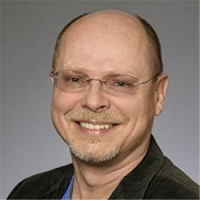
Wolfgang Fink, PhD
Dr. Wolfgang Fink is an associate professor of electrical and computer engineering and the inaugural Edward & Maria Keonjian Endowed Chair in Microelectronics at the University of Arizona. He holds joint appointments in the departments of electrical and computer engineering, biomedical engineering, systems and industrial engineering, aerospace and mechanical engineering, and ophthalmology and vision science.
Dr. Fink is the founder and director of the Visual and Autonomous Exploration Systems Research Laboratory at Caltech and the University of Arizona and the founder and director of the University of Arizona Center for Informatics and Telehealth in Medicine.
Dr. Fink’s research comprises general smart service systems, autonomous systems, human-computer interfaces, smart platforms for mobile and telehealth, and computer-optimized design. He was one of the principal investigators of the US Department of Energy’s Artificial Retina consortium—involving six National Laboratories, four universities, and one industry partner—which pioneered the only FDA-approved visual prosthesis to date: the Argus II by Second Sight Medical Products, Inc., restoring vision to 350+ blind subjects in clinics worldwide. Dr. Fink is an AIMBE fellow, a PHMS fellow, an SPIE lifetime fellow, an ARVO fellow, a National Academy of Inventors (NAI) lifetime fellow, and a senior member of IEEE. He holds more than 32 US and foreign patents to date.
Yan Shoshitaishvili
Yan Shoshitaishvili is a leading cybersecurity expert and an associate professor of computer science and engineering in the School of Computing and Augmented Intelligence, part of the Ira A. Fulton Schools of Engineering at Arizona State University and ASU Online.
As the associate director of workforce development for the Center for Cybersecurity & Trusted Foundations, he researches computer security and AI-driven defense, while teaching students to think like hackers to build stronger digital systems.
Yong Wang, PhD
Dr. Yong Wang is professor and chair of the department of computer science at the University of Idaho. He earned his PhD in computer science from the University of Nebraska–Lincoln in 2007, with a research focus on wireless sensor networks and network security. Before entering academia, he worked for a decade in the telecommunications industry as a senior software engineer and team leader, developing and managing large-scale software systems.
Dr. Wang’s academic career began at Dakota State University in 2012, where he served as a professor in the Beacom College of Computer and Cyber Sciences and later as associate dean of graduate programs. His research centers on security and privacy in the internet of things, cyber-physical systems, and cyberinfrastructure, as well as the applications of machine learning and artificial intelligence to these areas.


